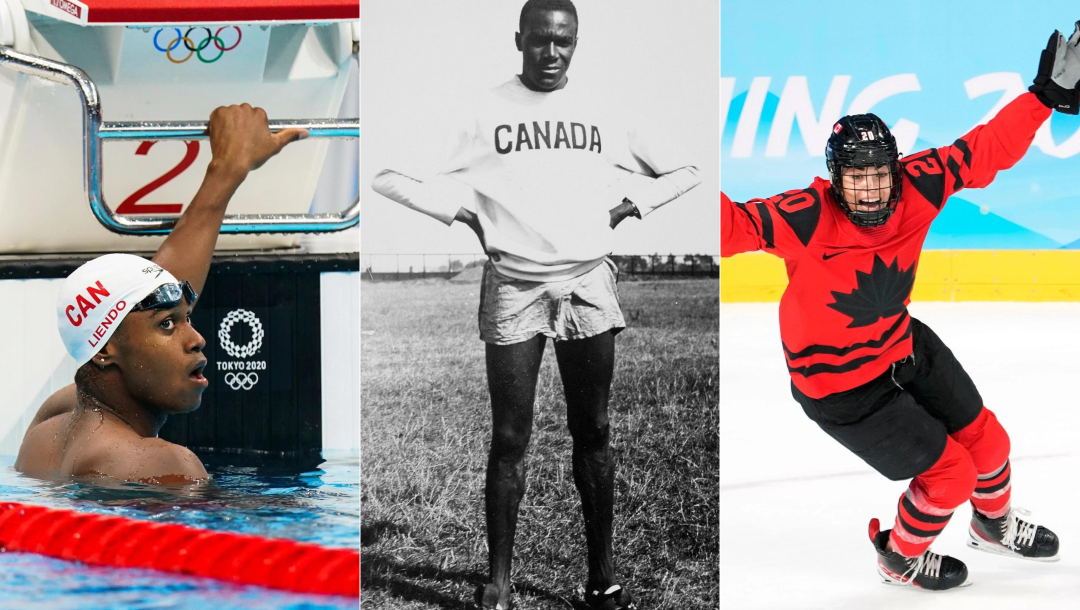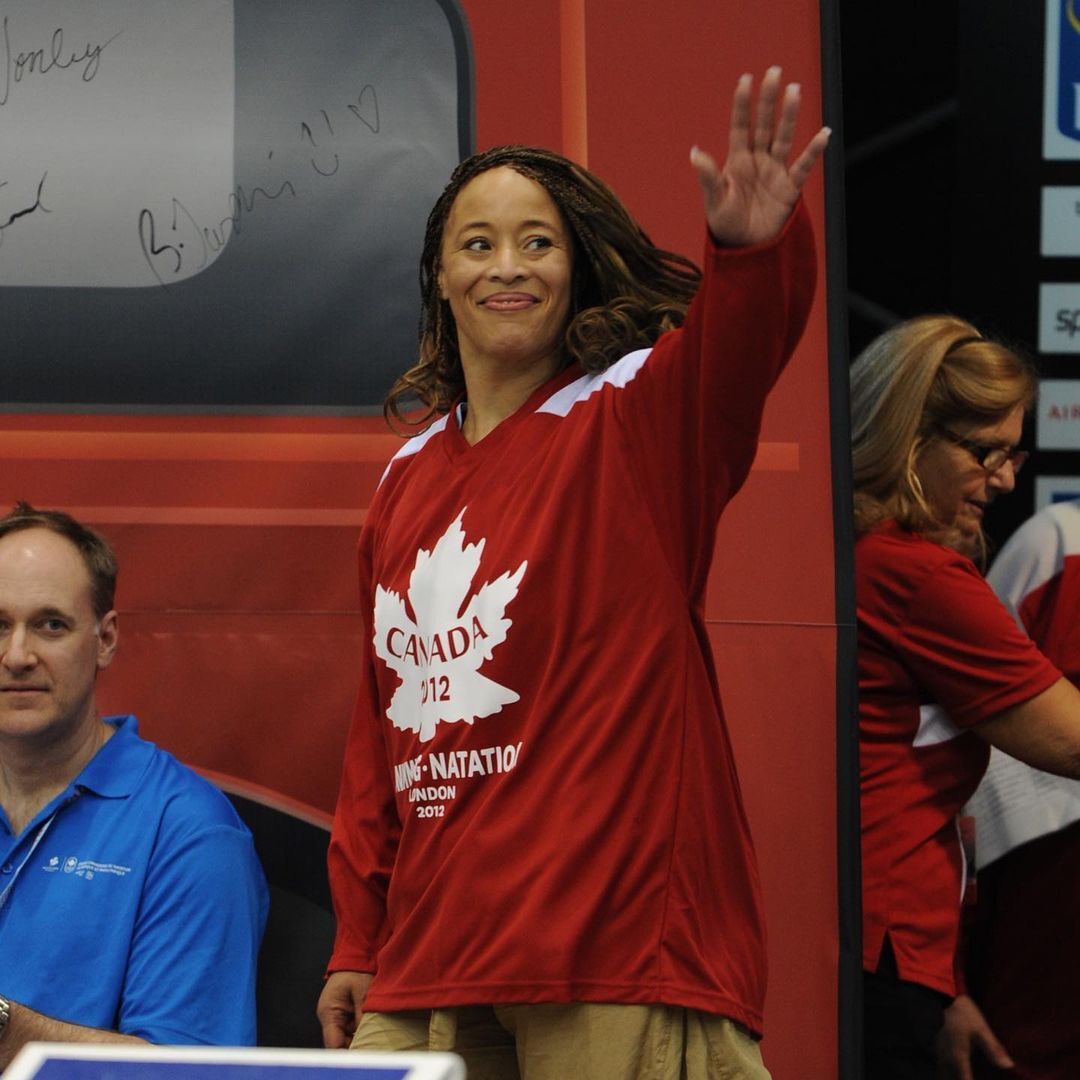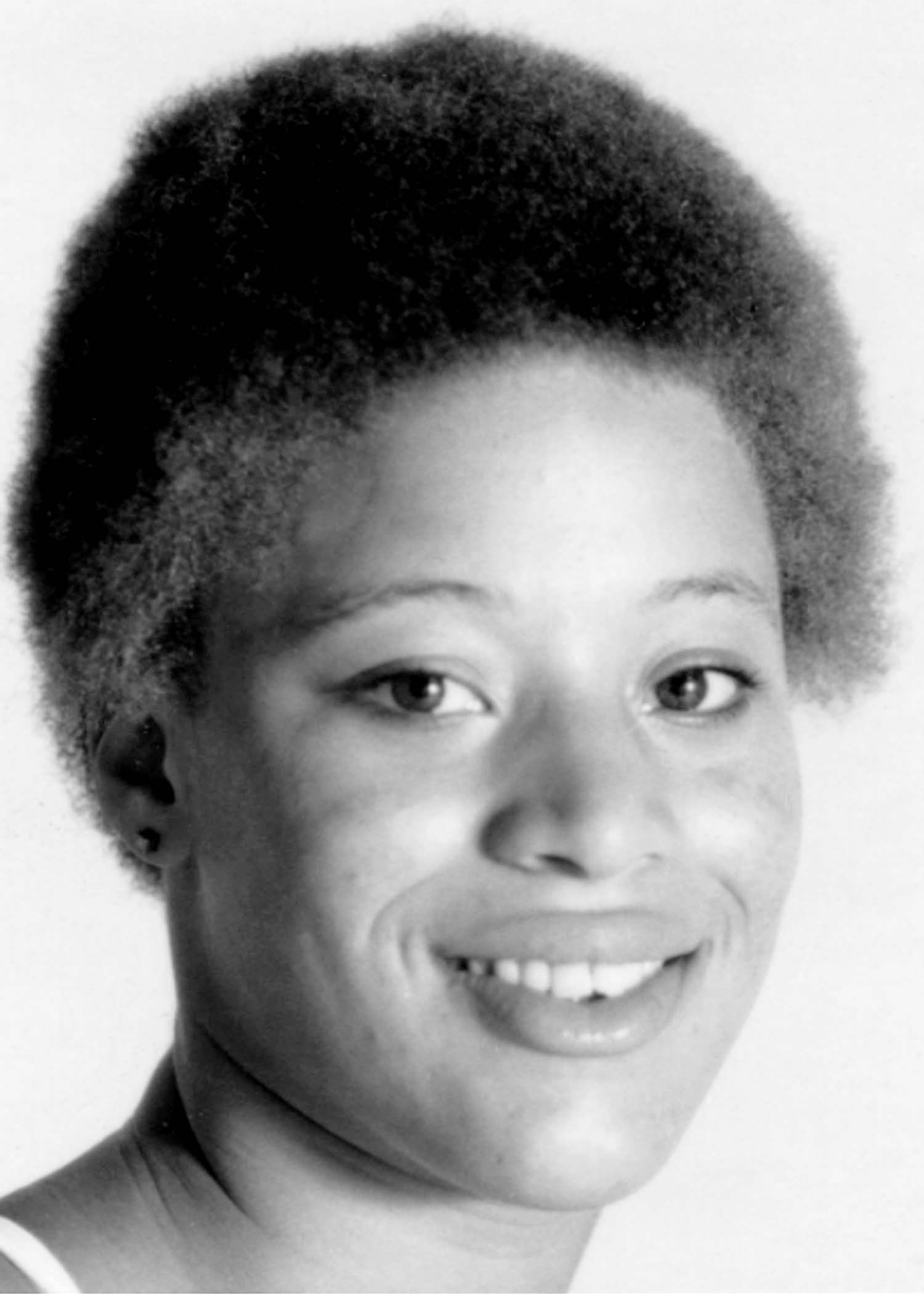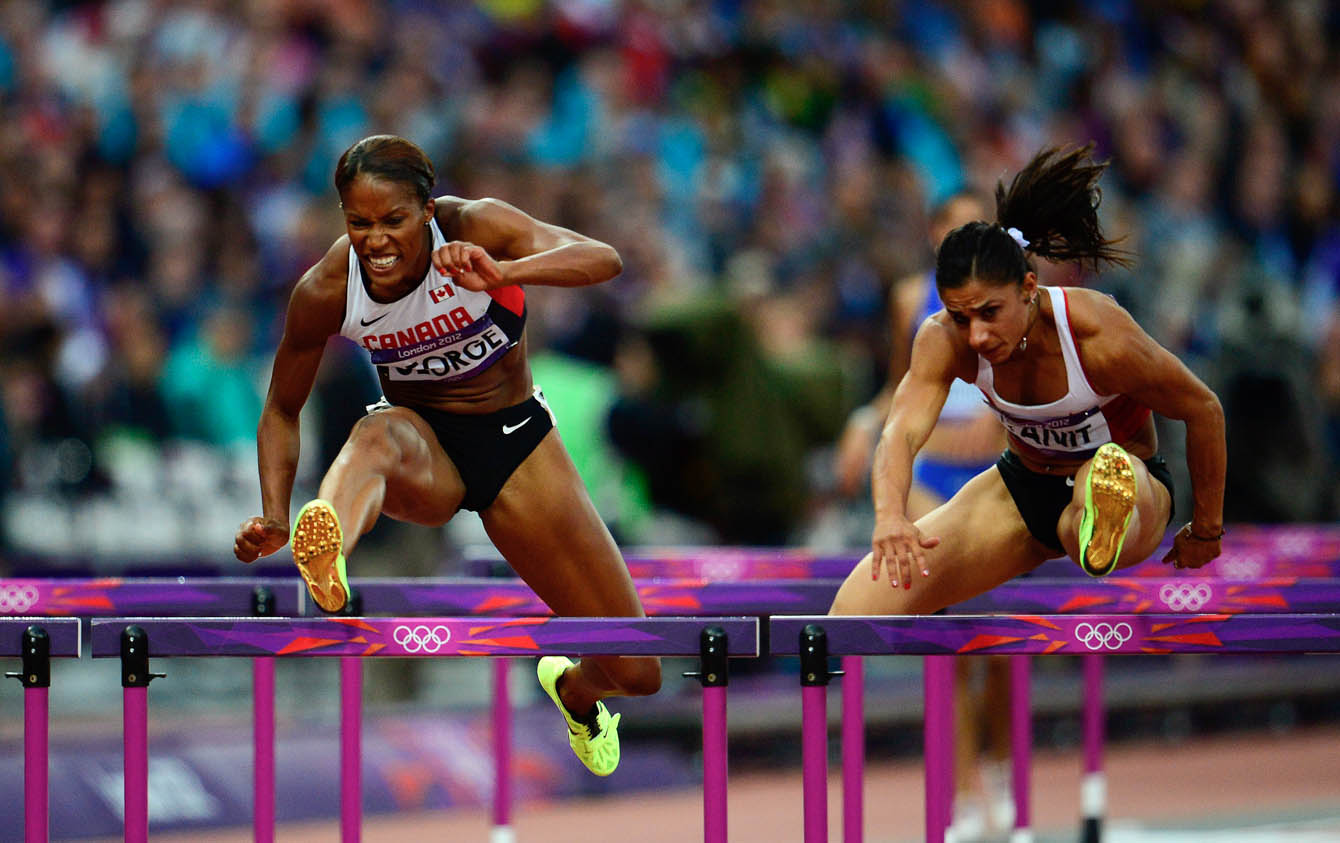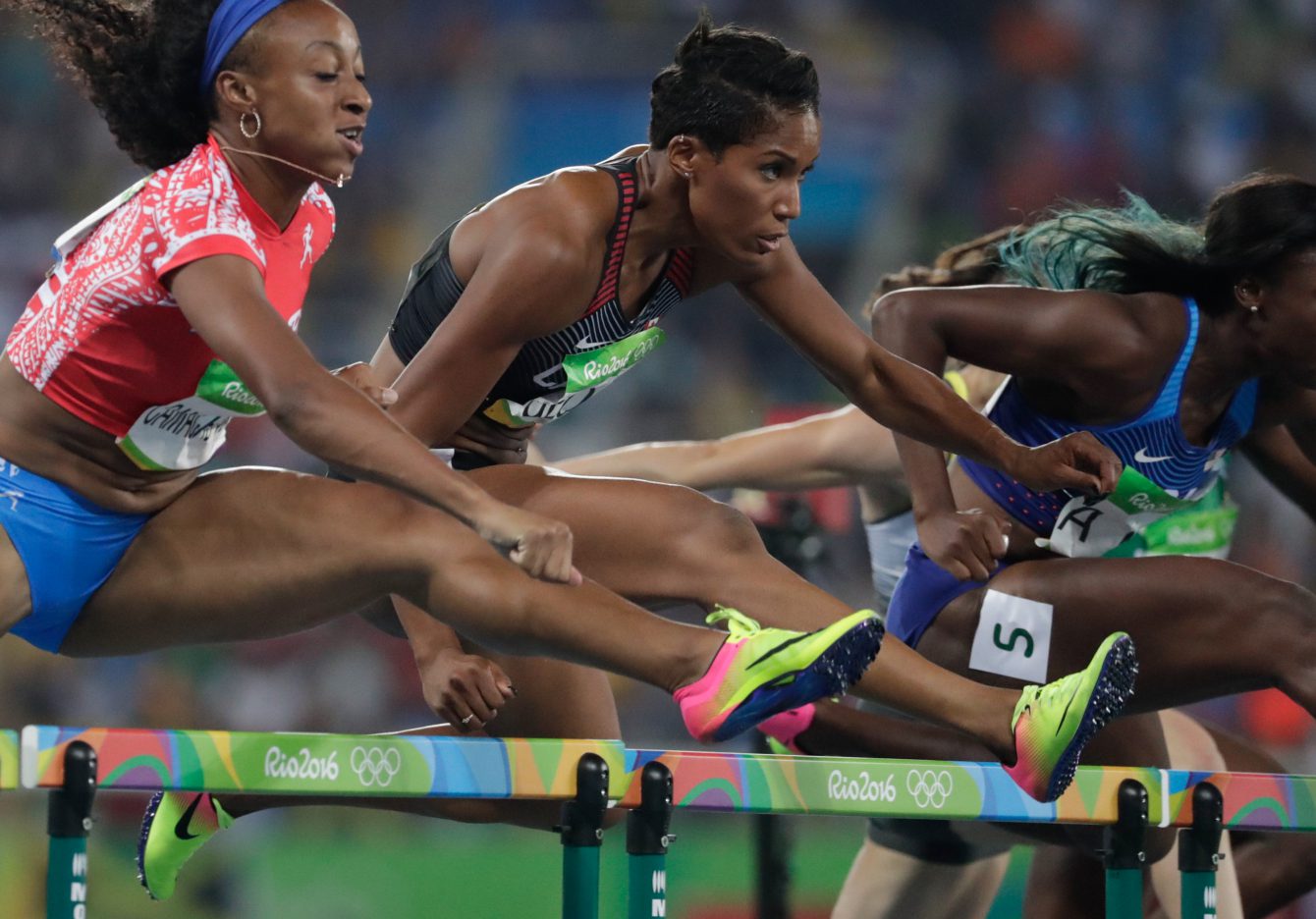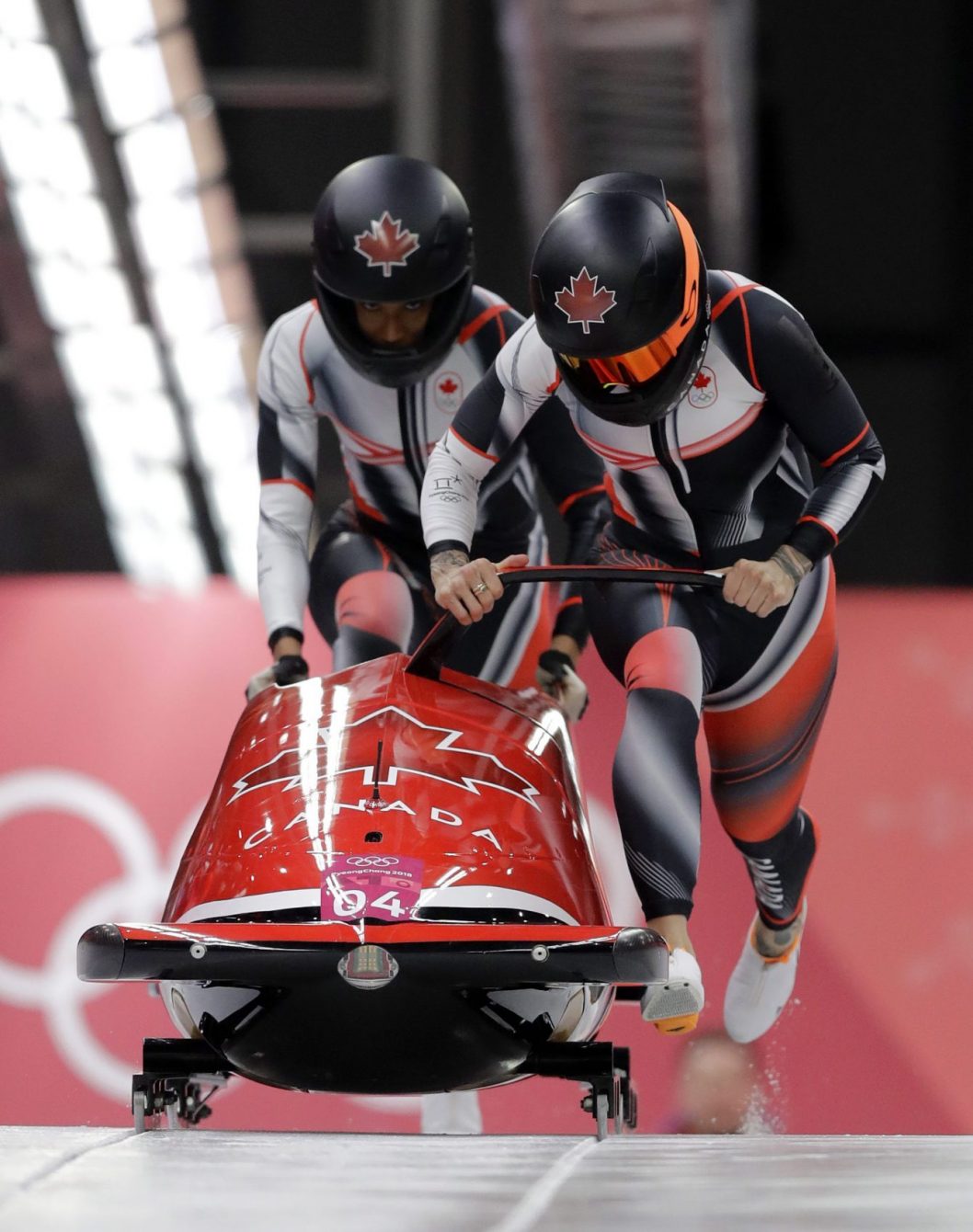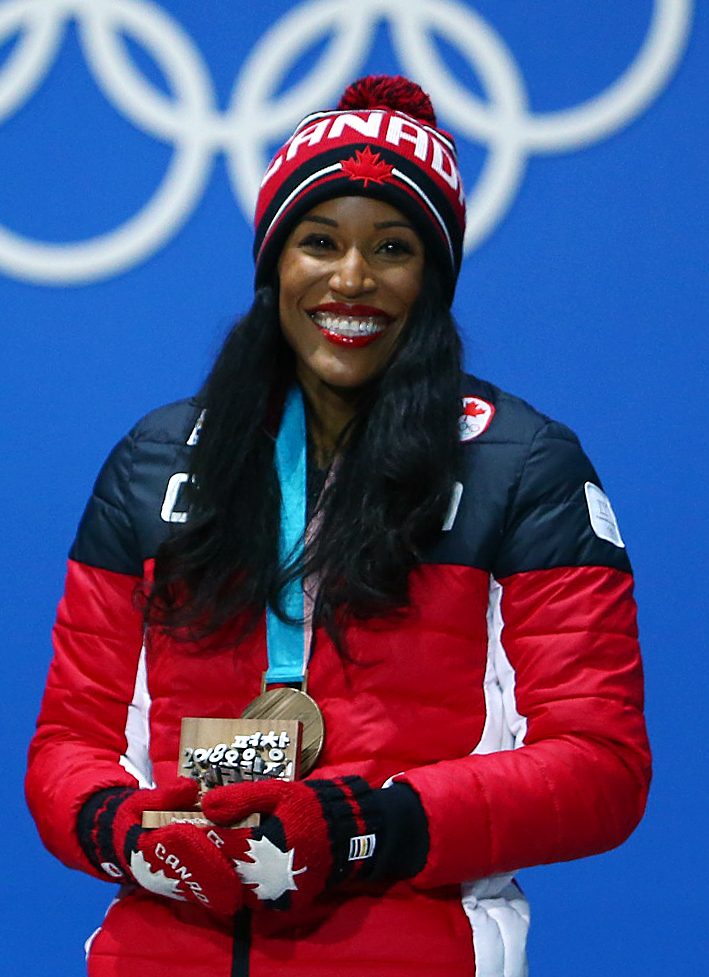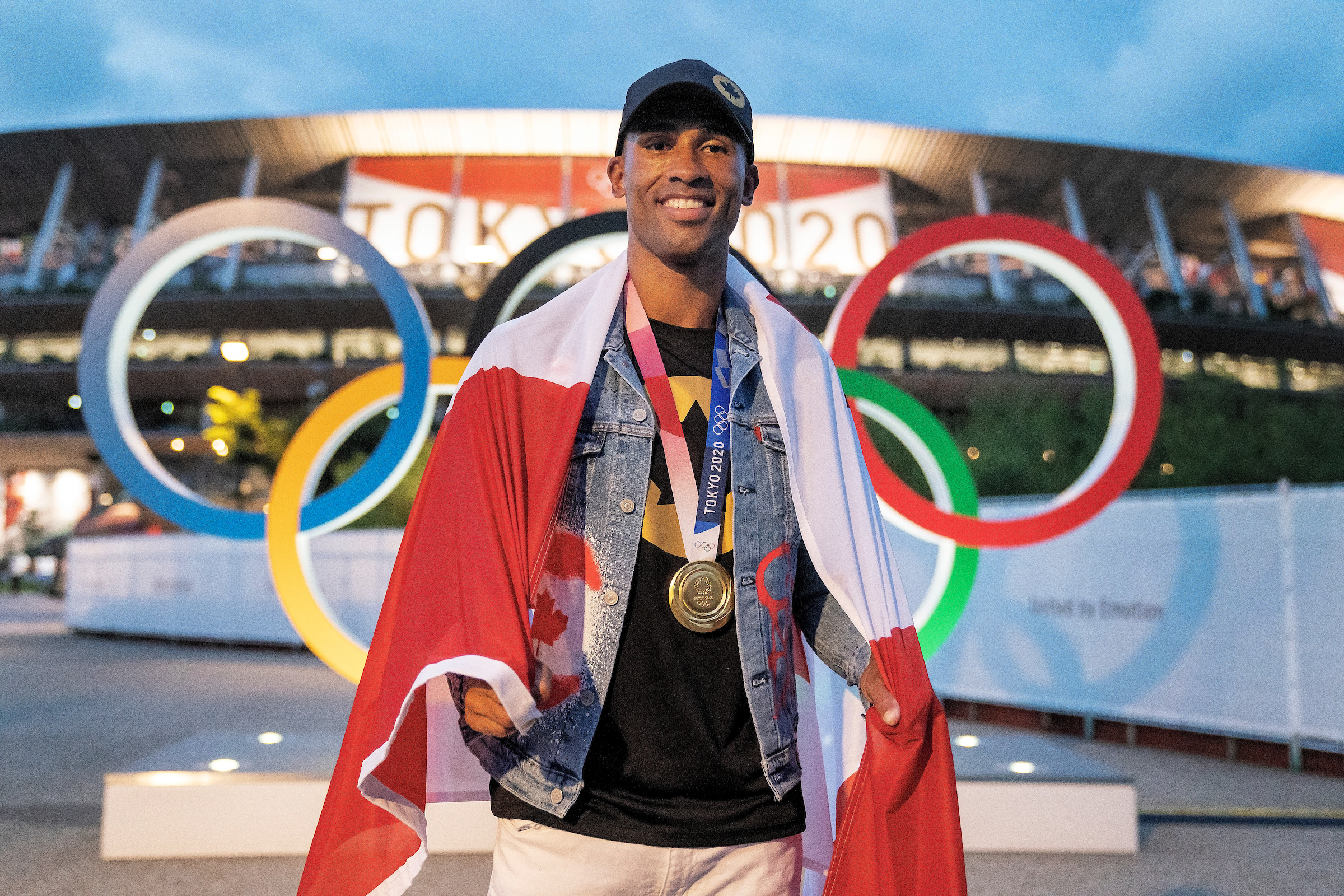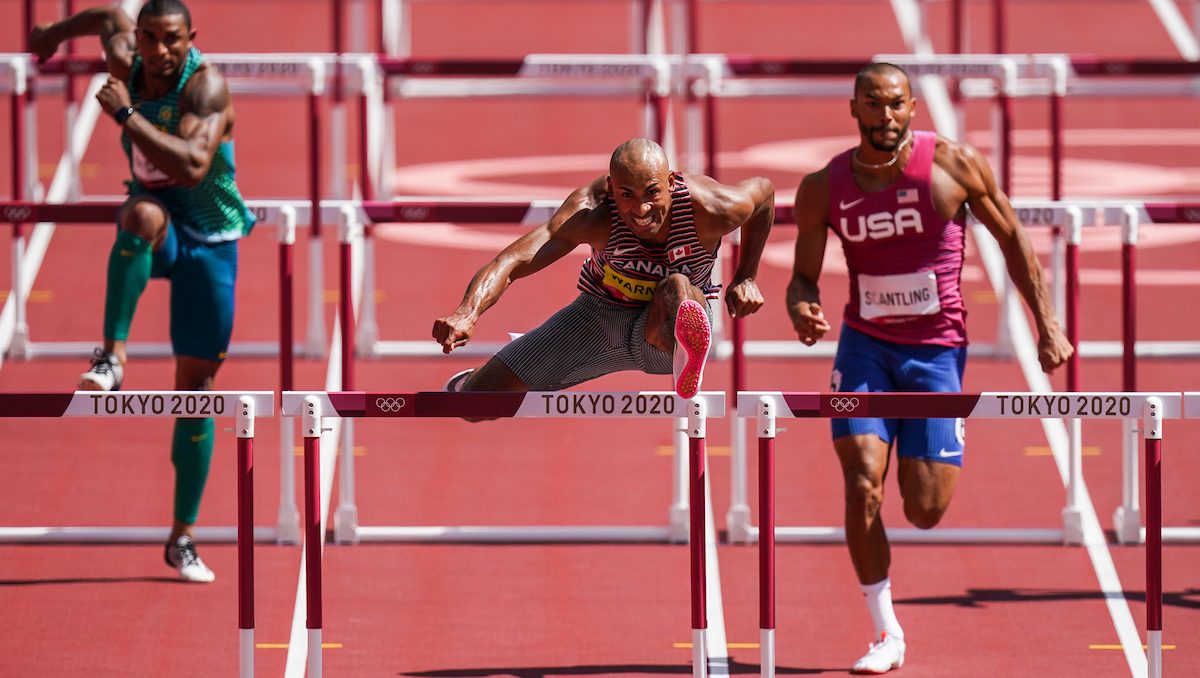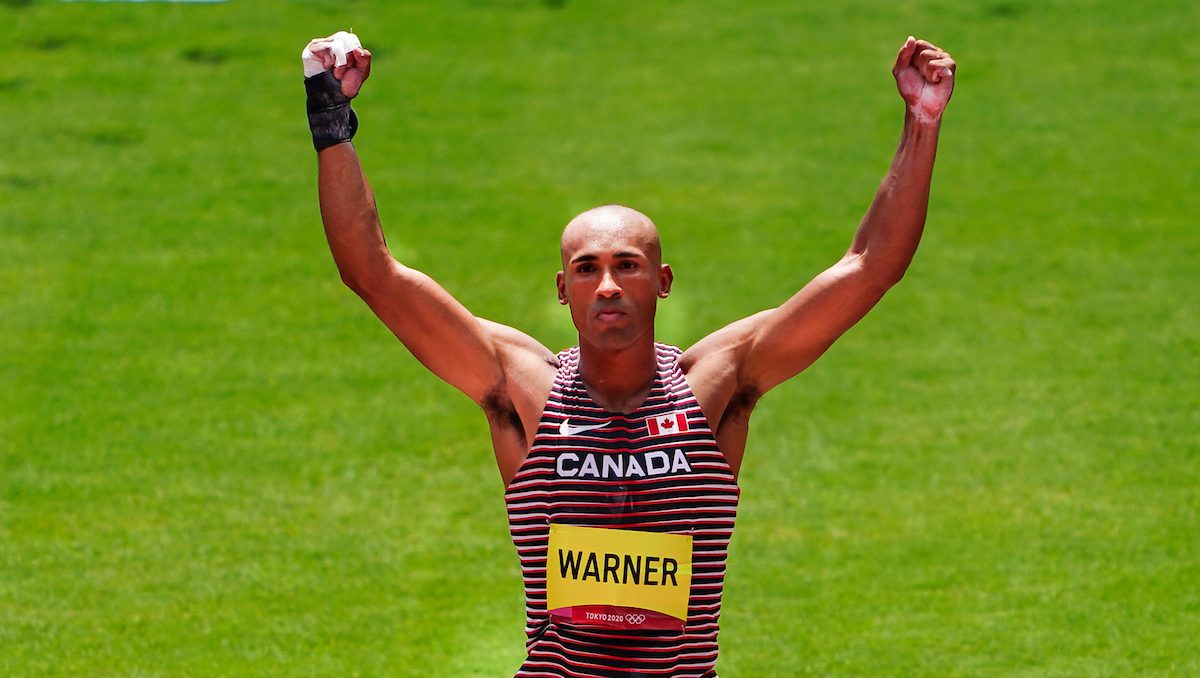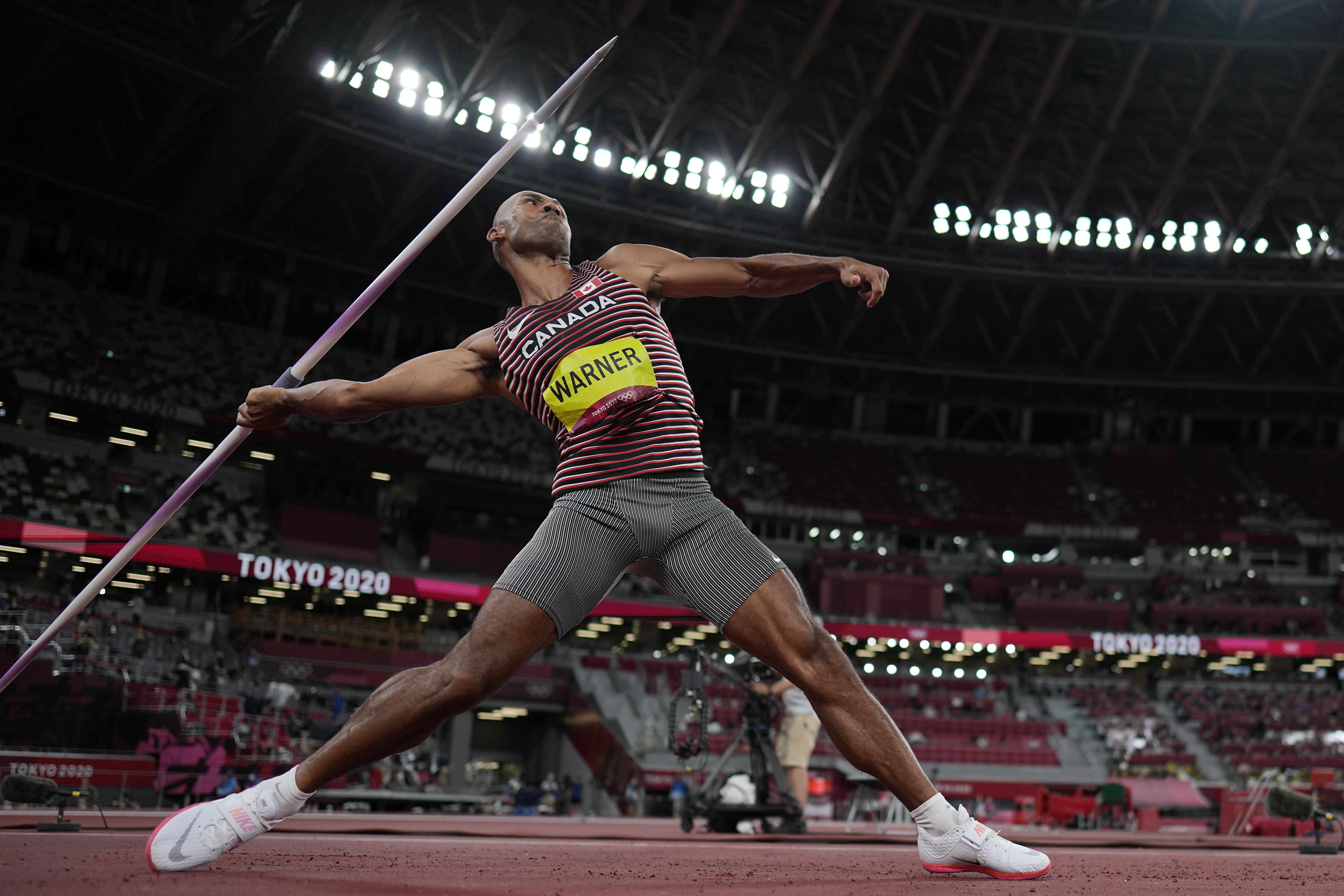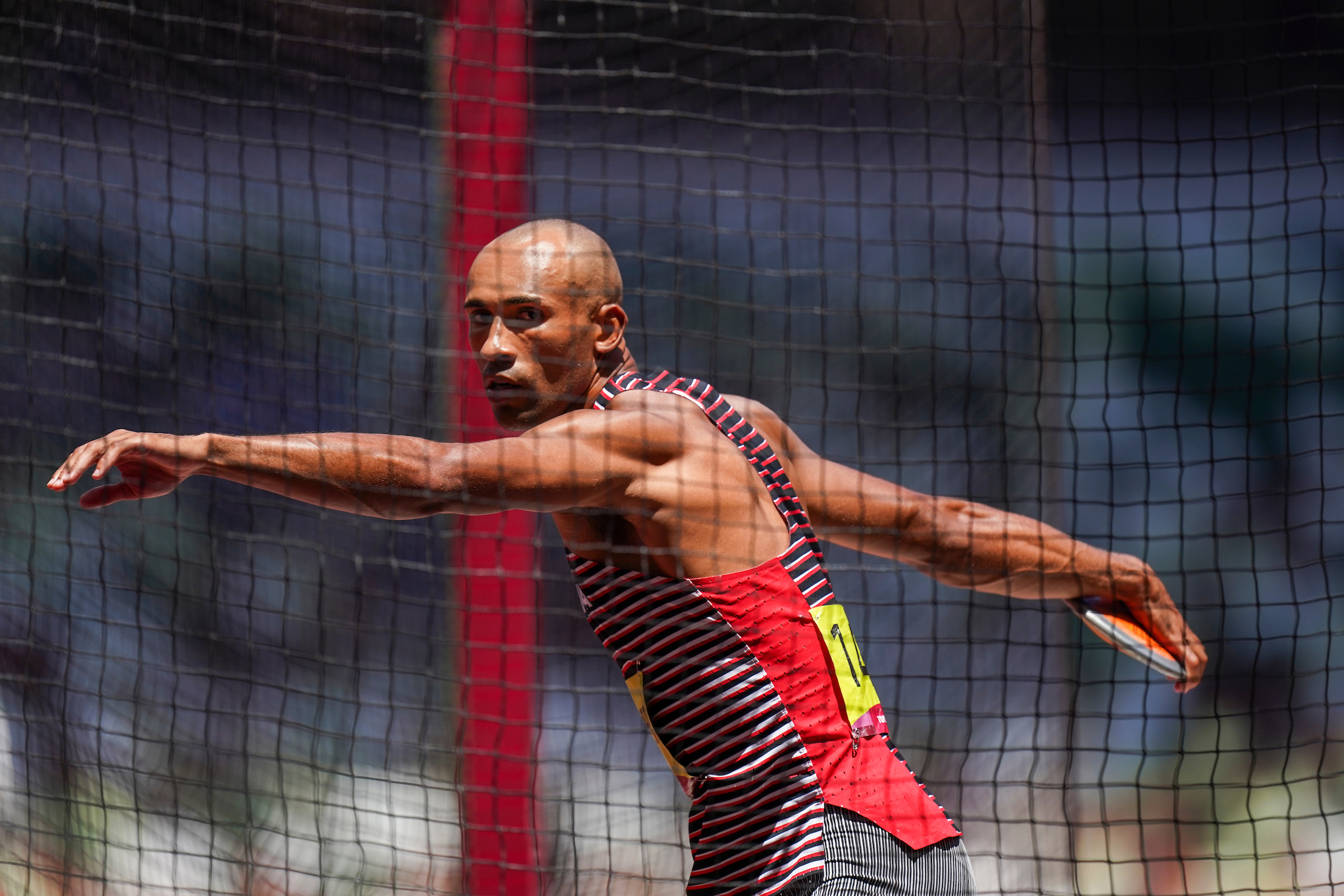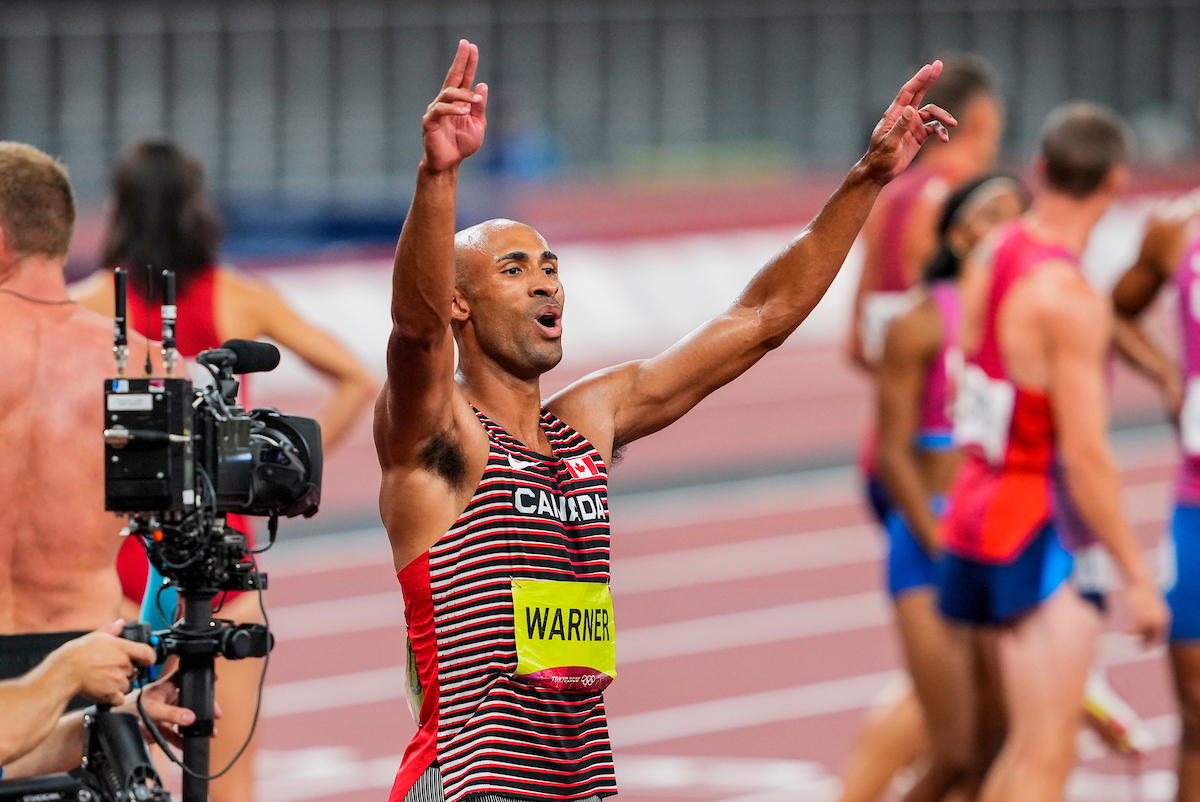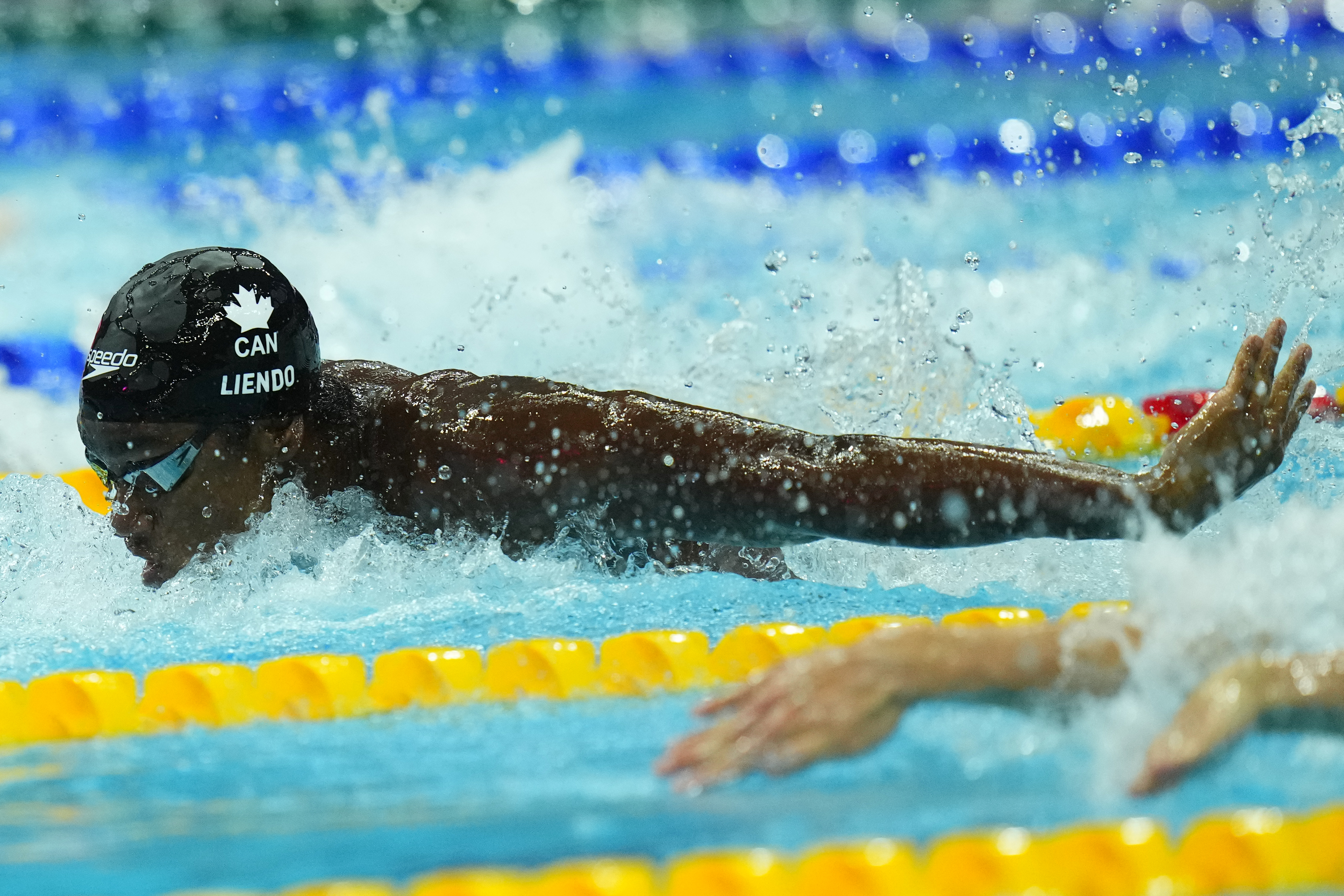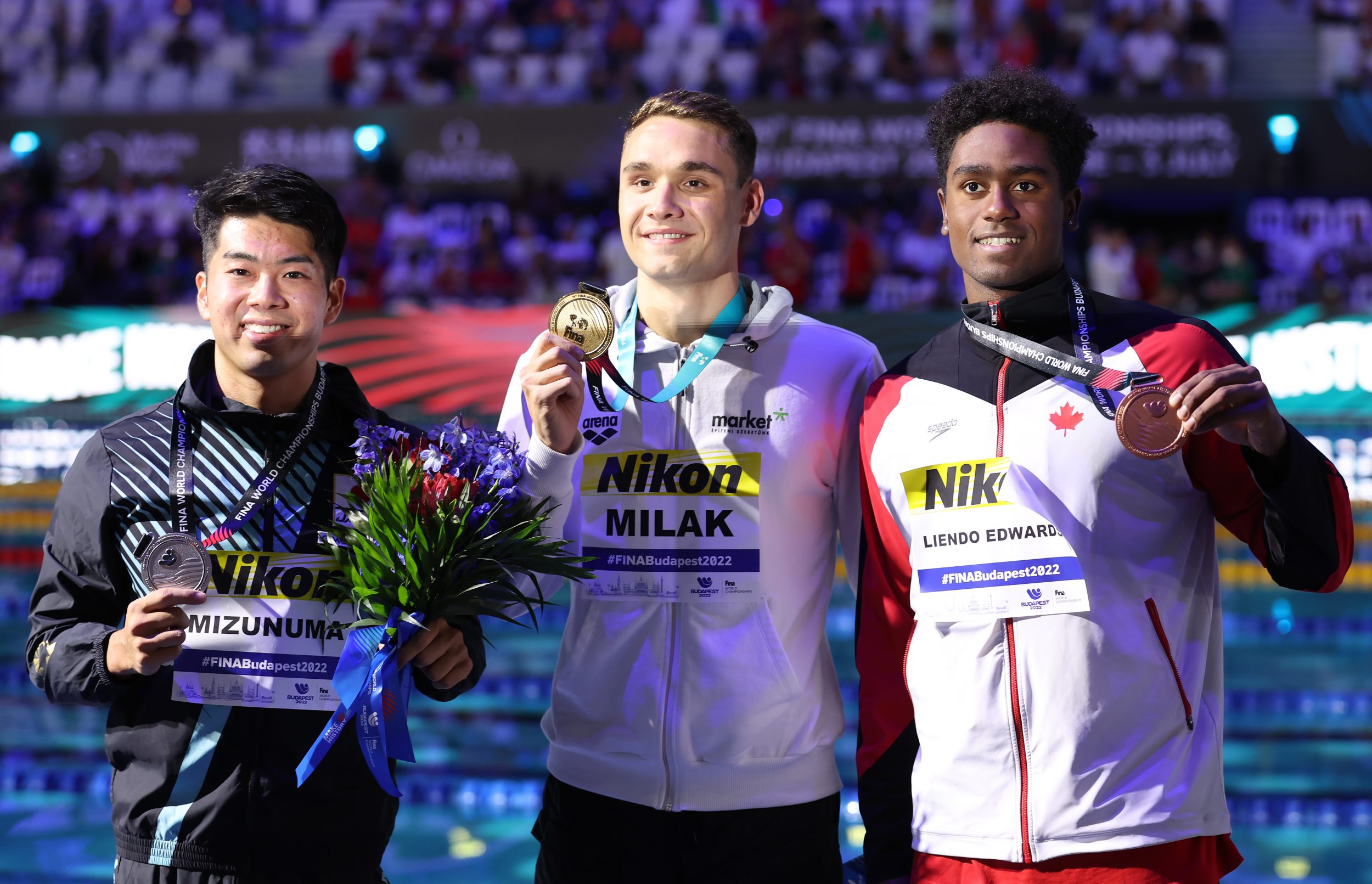Black athletes who made Olympic sport history for Canada
This article was updated in January 2025
Black History Month is about honouring Black Canadians, past and present. We look to celebrate the contributions of Black athletes who have shaped our country, communities and culture for the better.
Though it had been celebrated since 1976, it wasn’t until December 1995 that the House of Commons officially recognized February as Black History Month in Canada.
Now, we are taking the time to celebrate some of the Black Canadian athletes who have contributed so much to our sporting success on the Olympic stage and beyond, inspiring generation after generation as they broke down barriers.
Canadian Olympic School Program:
Black History Collection
Sharing the stories and celebrating the contributions
of inspiring Black Canadian athletes
Army Howard
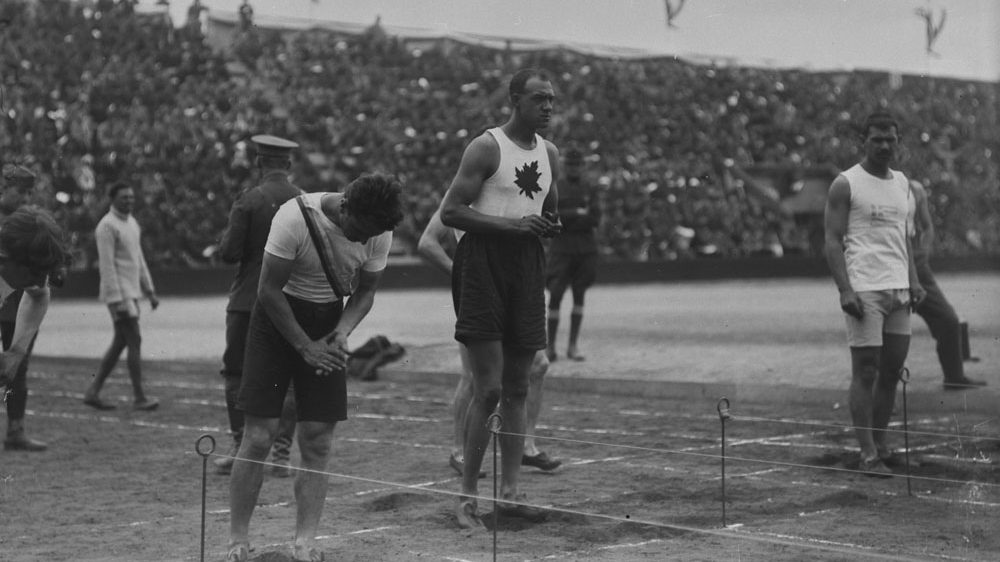
It was at Stockholm 1912 that John “Army” Howard became the first Black Olympian to represent Canada. But it was a troublesome time for him. He was subjected to racist coverage in the newspapers of the day. He was forbidden from staying in the same hotel as his white teammates as they prepared to cross the Atlantic and he endured a difficult ocean voyage.
A top-ranked sprinter who had previously defeated the Americans who would become Olympic medallists in the 100m and 200m, Howard unfortunately suffered from a stomach ailment in Stockholm and was unable to advance to the finals of his events.
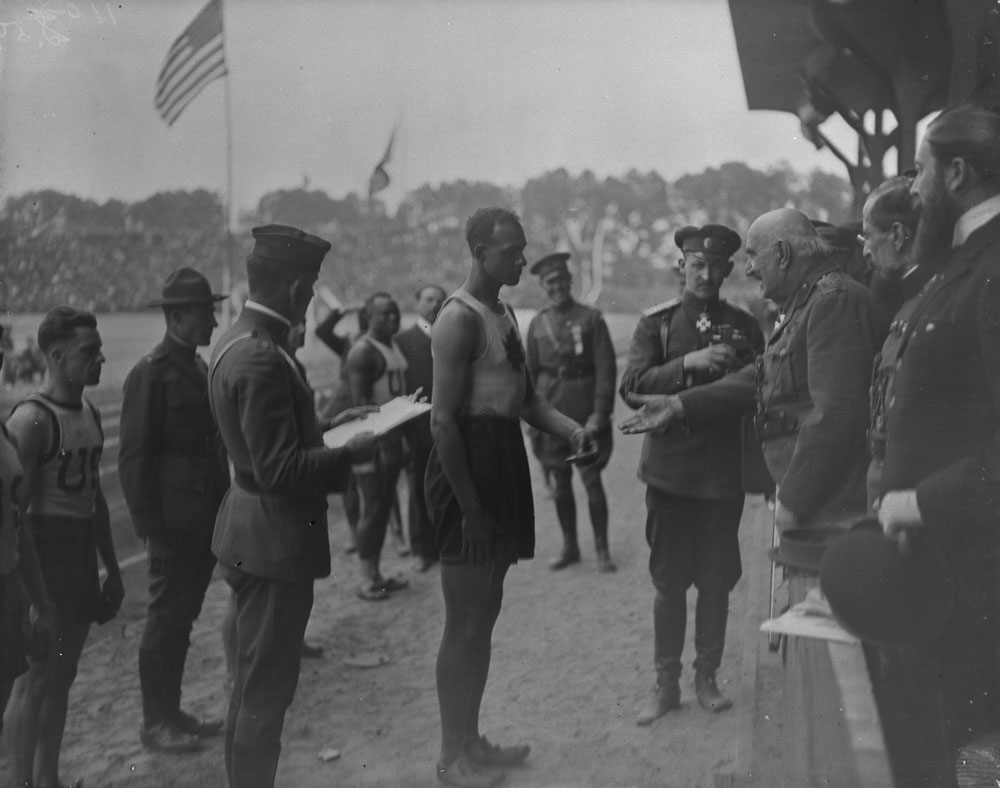
While serving with the Canadian Expeditionary Force in World War I, Howard won 100m bronze at the 1919 Inter-Allied Games. But even after he finished competing, his impact on Canadian sport was felt through two of his grandchildren who became Olympians themselves.
Phil Edwards
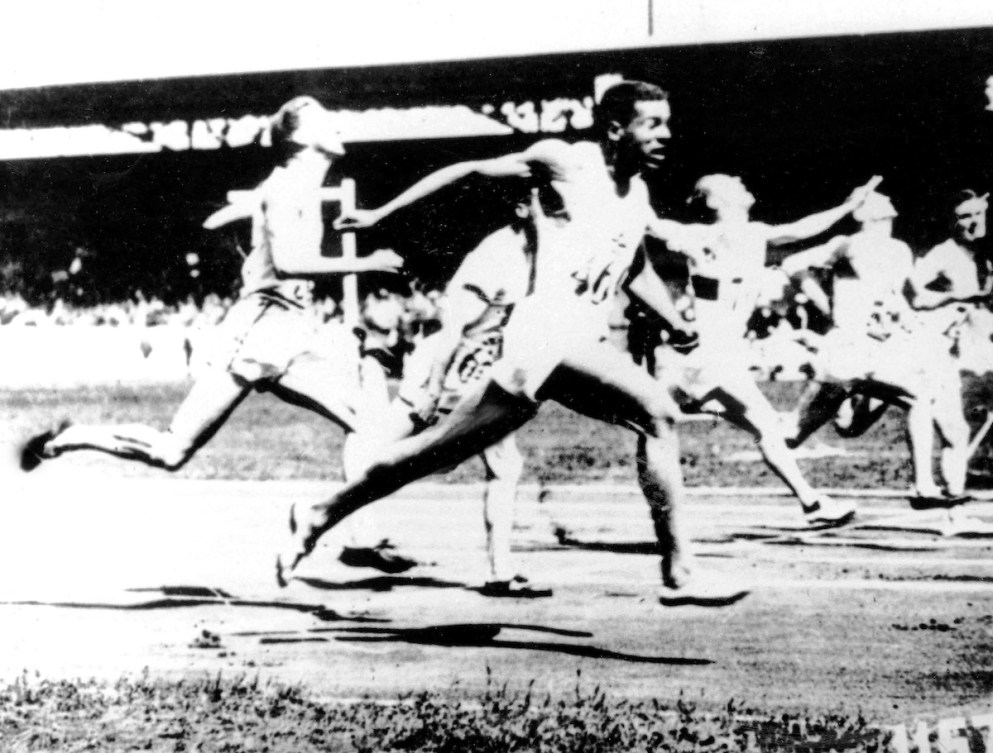
Born in Guyana, middle distance runner Phil Edwards earned the nickname “Man of Bronze”. He was unique among track and field athletes, winning five Olympic bronze medals but none of any other colour. Those five medals stood as a Canadian Olympic record that wouldn’t be matched until 2002.
Edwards’ first Olympic medal came at Amsterdam 1928 with the 4x400m relay team. At Los Angeles 1932, he had his greatest Olympic performance, standing on the podium as an individual in the 800m and 1500m while winning another 4x400m relay bronze. Edwards capped his Olympic career with another 800m bronze at Berlin 1936.
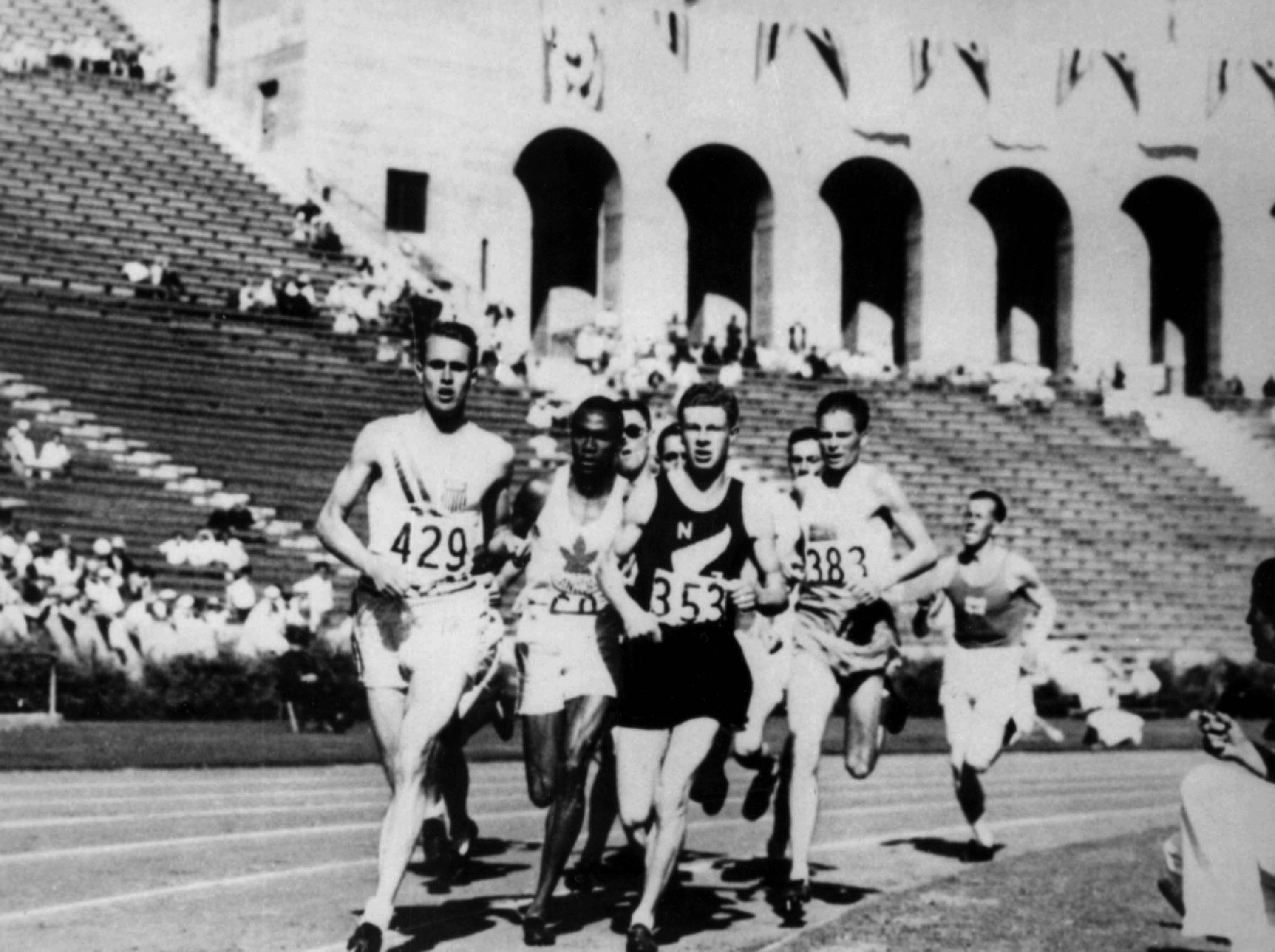
Among his other historic achievements were becoming the first Black man to win a medal at the British Empire Games (now Commonwealth Games) in 1934 and winning the first ever Northern Star Award (formerly Lou Marsh Trophy) as Canada’s Athlete of the Year in 1936.
Just before his final Olympic appearance, Edwards became the first person of African descent to graduate from McGill Medical School. He went on to have a distinguished career, serving as a consultant to the Canadian government on tropical and chest diseases.
Ray Lewis
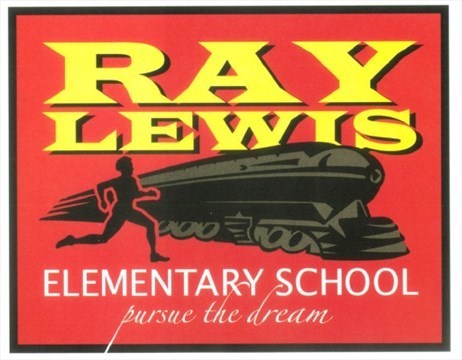
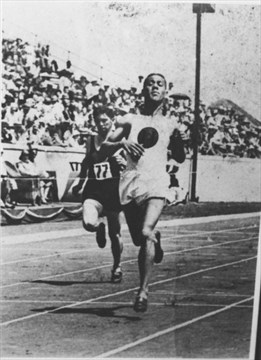
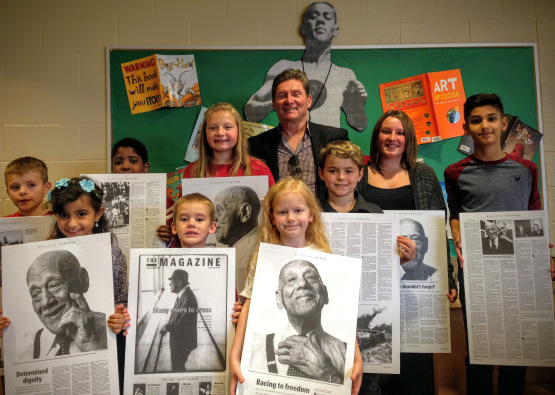
One of Edwards’ teammates on the bronze medal-winning 4x400m relay squad at Los Angeles 1932 was Ray Lewis. From Hamilton, Ontario, the grandson of escaped slaves was the first Canadian-born Black athlete to win an Olympic medal.
After not being selected for the 1928 Olympic team, Lewis continued to train while working as a porter with the Canadian Pacific Railway. He decided to give up a month’s pay to compete at the 1932 Canadian trials where he earned his ticket to Los Angeles.
Though he received few accolades in the immediate aftermath of his Olympic success, he was named to the Order of Canada in 2001 and following his death in 2003 had an elementary school in Hamilton named in his honour.
Barbara Howard
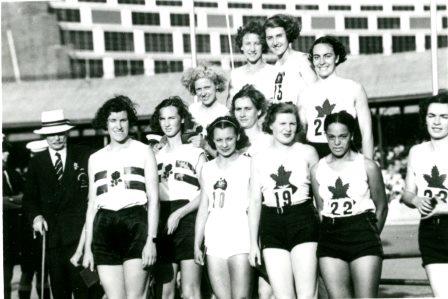
Barbara Howard was just 17 when she qualified for the 1938 British Empire Games after running the 100 yards in 11.2 seconds, a tenth of a second better than the British Empire Games record. Believed to be the first Black woman to represent Canada in international sports competition, she came home from Sydney, Australia with a pair of relay medals.
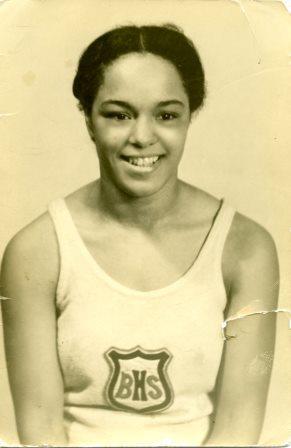
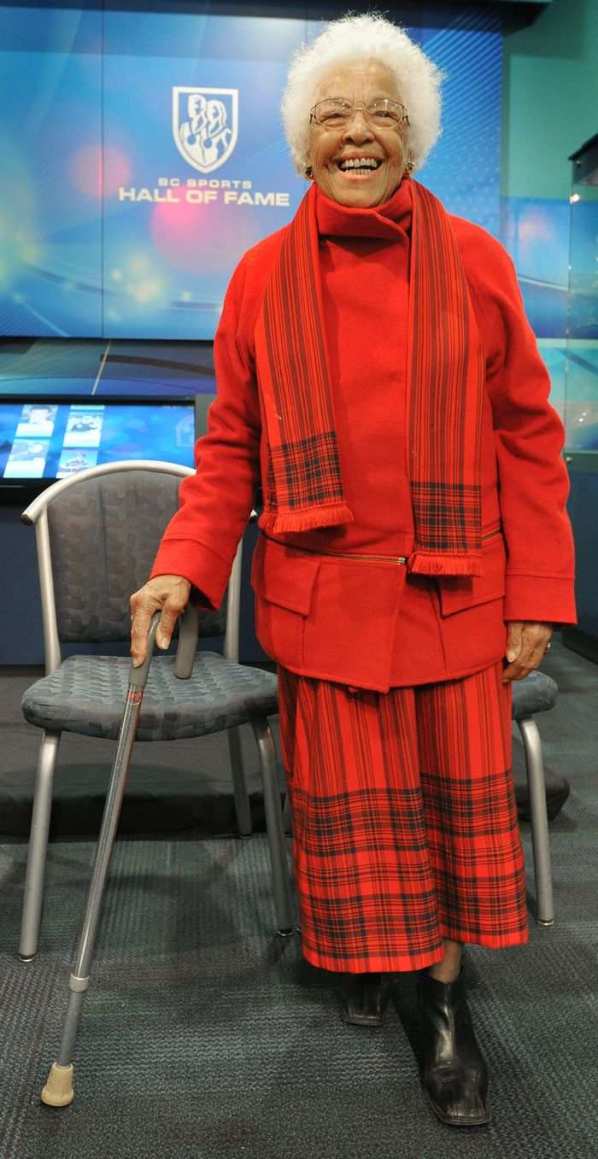
But Howard never got the chance to showcase her sprinting ability at the Olympic Games when World War II led to their cancellation in 1940 and 1944. She went on to graduate from the University of British Columbia and became a teacher, making history as the first person of a visible minority to be hired by the Vancouver School Board. Her athletic accomplishments were recognized in recent years. She was inducted to the BC Sports Hall of Fame in 2012 and Canada’s Sports Hall of Fame in 2015.
Harry Jerome
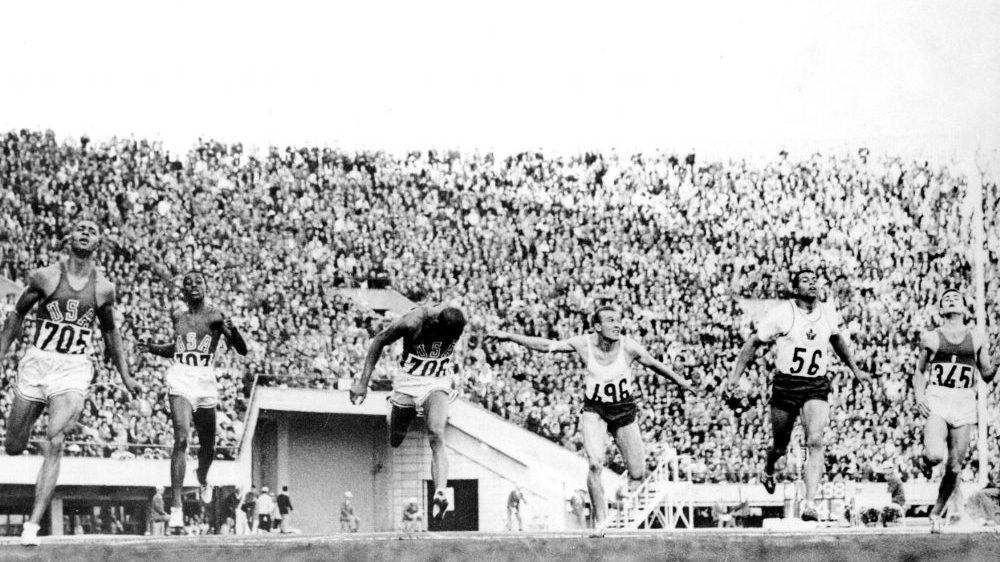
At Rome 1960, Harry Jerome and his younger sister Valerie followed in the footsteps of their Olympian grandfather Army Howard. Harry was the more accomplished of the sprinting siblings, tying the 100m world record in July 1960. After an injury affected his first Olympic appearance, he won 100m bronze at Tokyo 1964 where he also finished fourth in the 200m.
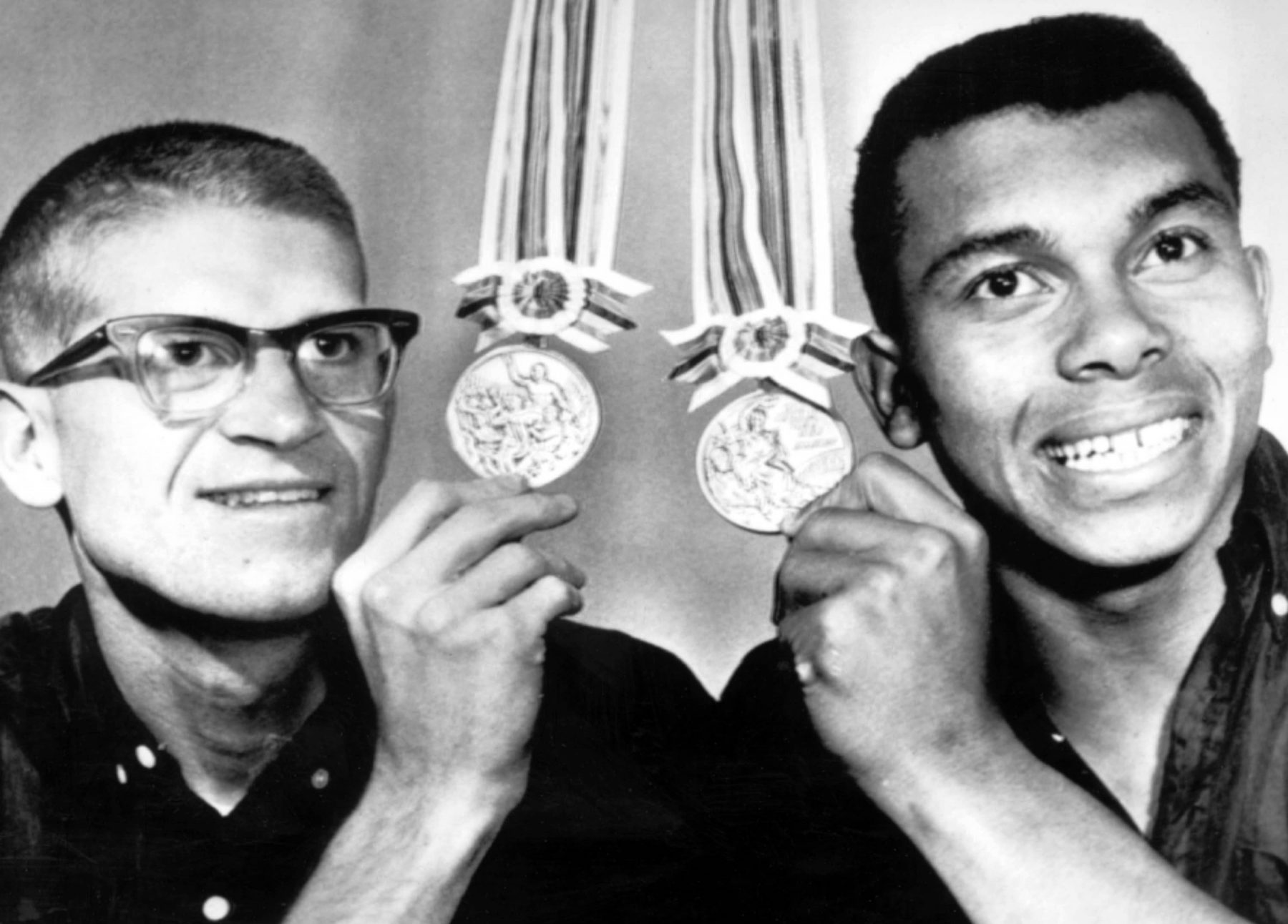
Retiring from competition after his third Olympic Games in 1968, Harry Jerome was invited by Prime Minister Pierre Trudeau to help create Canada’s new Ministry of Sport. He also used his profile to bring light to many socio-economic challenges facing Black Canadians, working to create opportunities outside of the sports world.
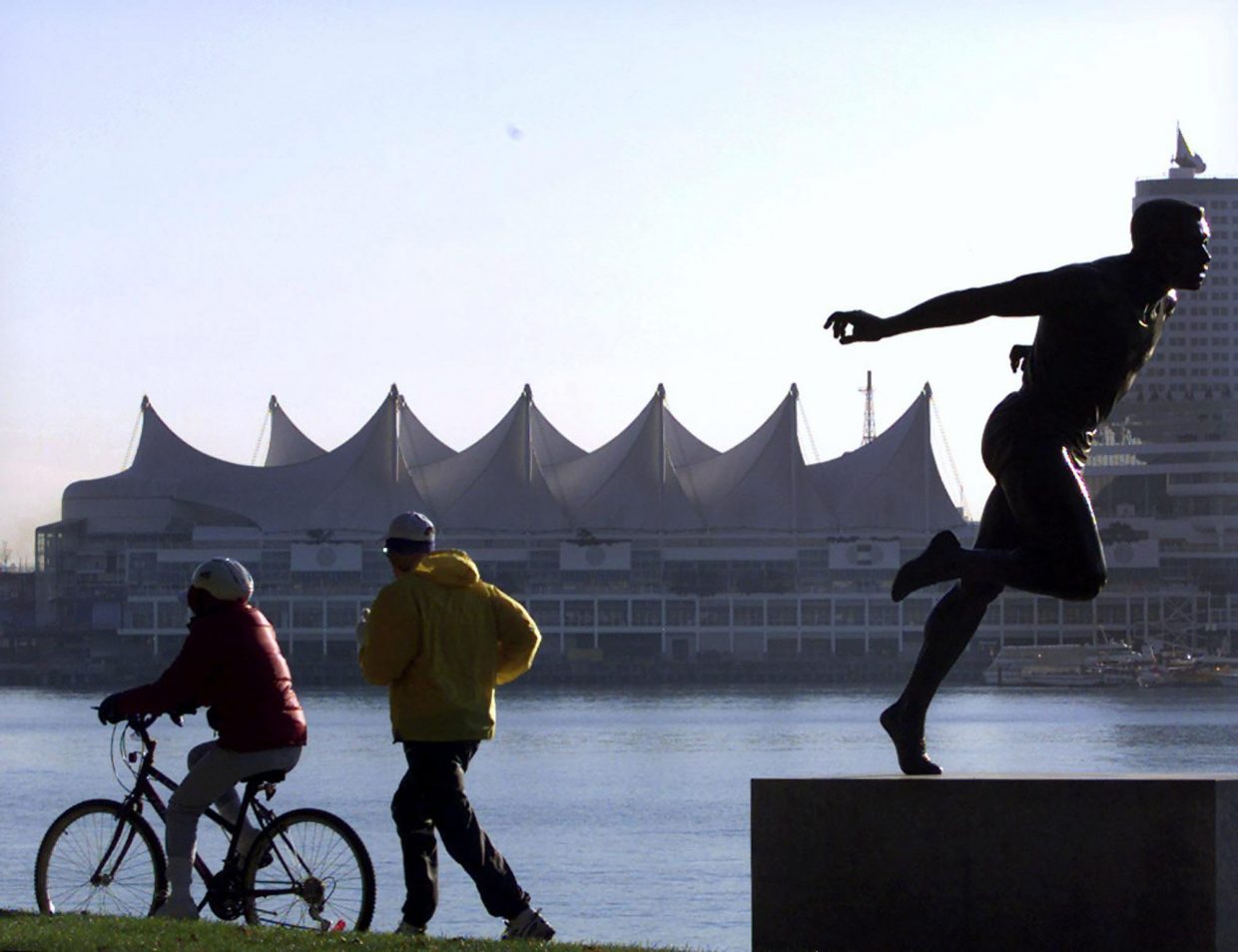
Jerome was just 42 when he suffered a brain aneurysm and died in 1982. Two years later, an annual international track and field meet in Vancouver was re-named in his honour and in 1988 a statue was erected in Stanley Park. He was inducted to Canada’s Walk of Fame in 2001.
Debbie Armstead
Debbie Armstead was the first Black Canadian swimmer to qualify for the Olympic Games. Sadly, she never got to compete at Moscow 1980 after Canada joined the American-led boycott. Two years later, she did represent Canada at the 1982 FINA World Championships in Ecuador, competing in the 100m butterfly. Armstead received some long-awaited recognition in 2012 when the 1980 Olympic swimming team was honoured during the Canadian national trials in Montreal.
Charmaine Crooks
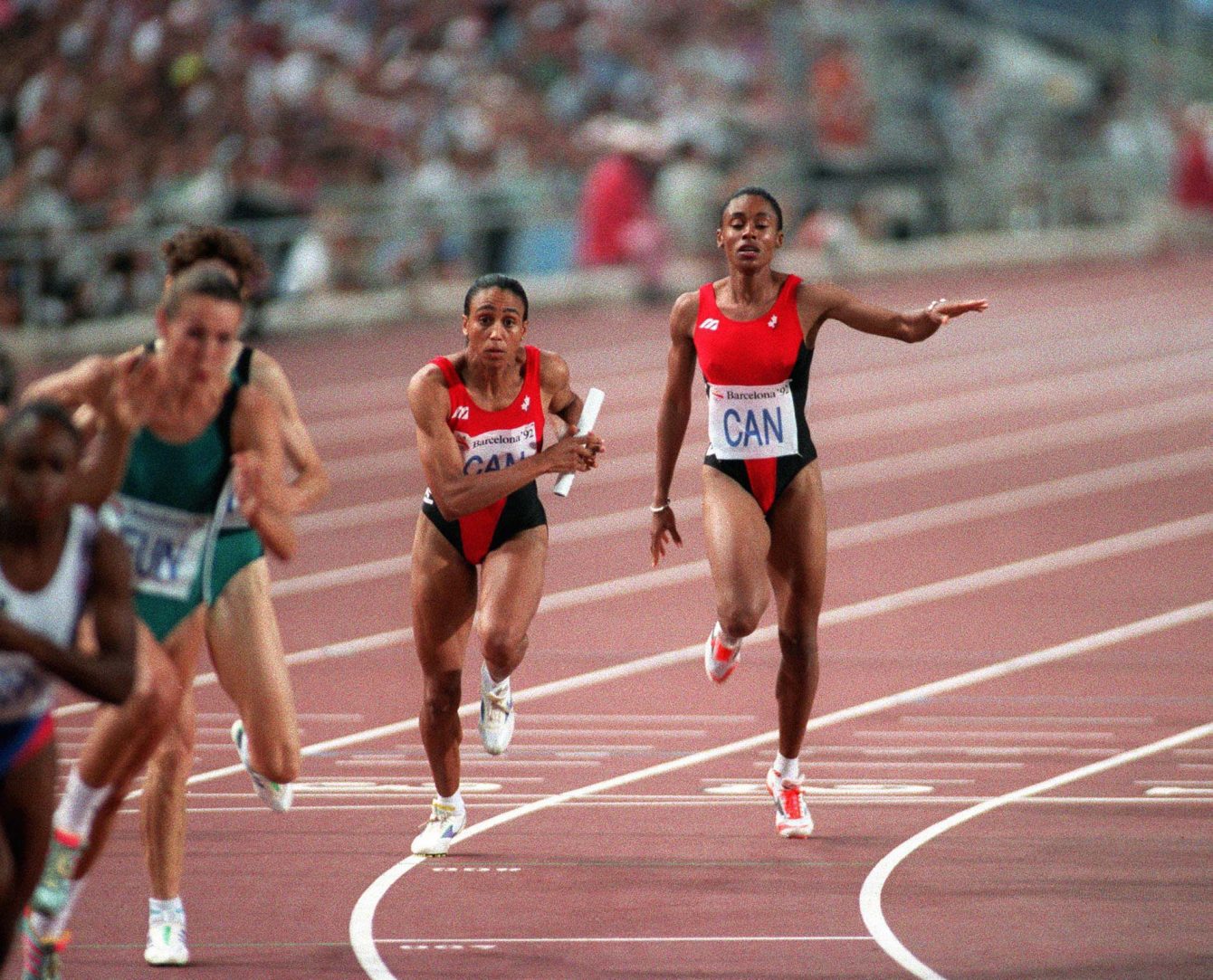
Five-time Olympian Charmaine Crooks has impacted Canadian sport like few others. At Los Angeles 1984, she was a member of the 4x400m relay team that won silver. At Atlanta 1996, she was given the honour of being of Team Canada’s Opening Ceremony flag bearer. In between, she won multiple medals at the Pan American and Commonwealth Games.
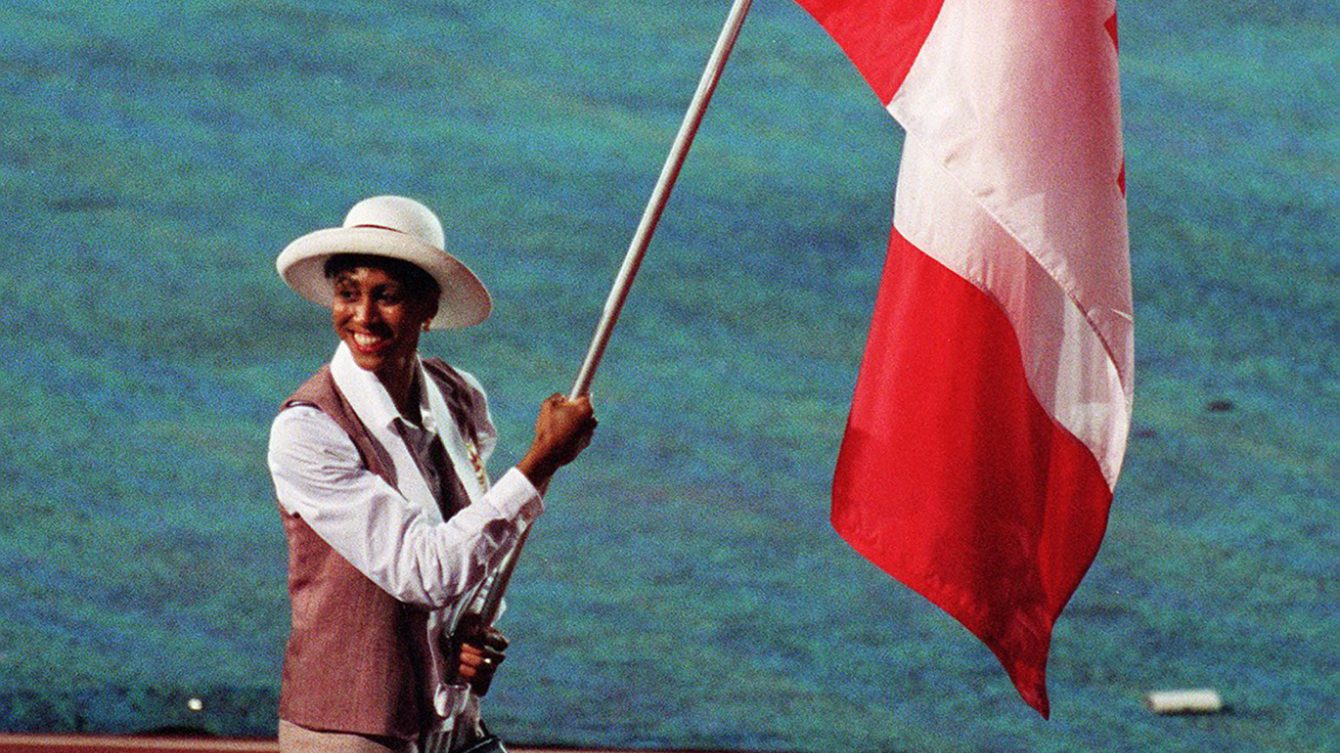
Elected by her peers to the IOC Athletes’ Commission in 1996, Crooks was a full voting IOC member from 2000 to 2004 and a founding member of the IOC Ethics Committee. Her commitment to fair play extended to her role on the founding Executive Board of the World Anti-Doping Agency. She has also served on the Executive Board of Right to Play International and in 2006 received the IOC Women and Sport Award.
Jarome Iginla
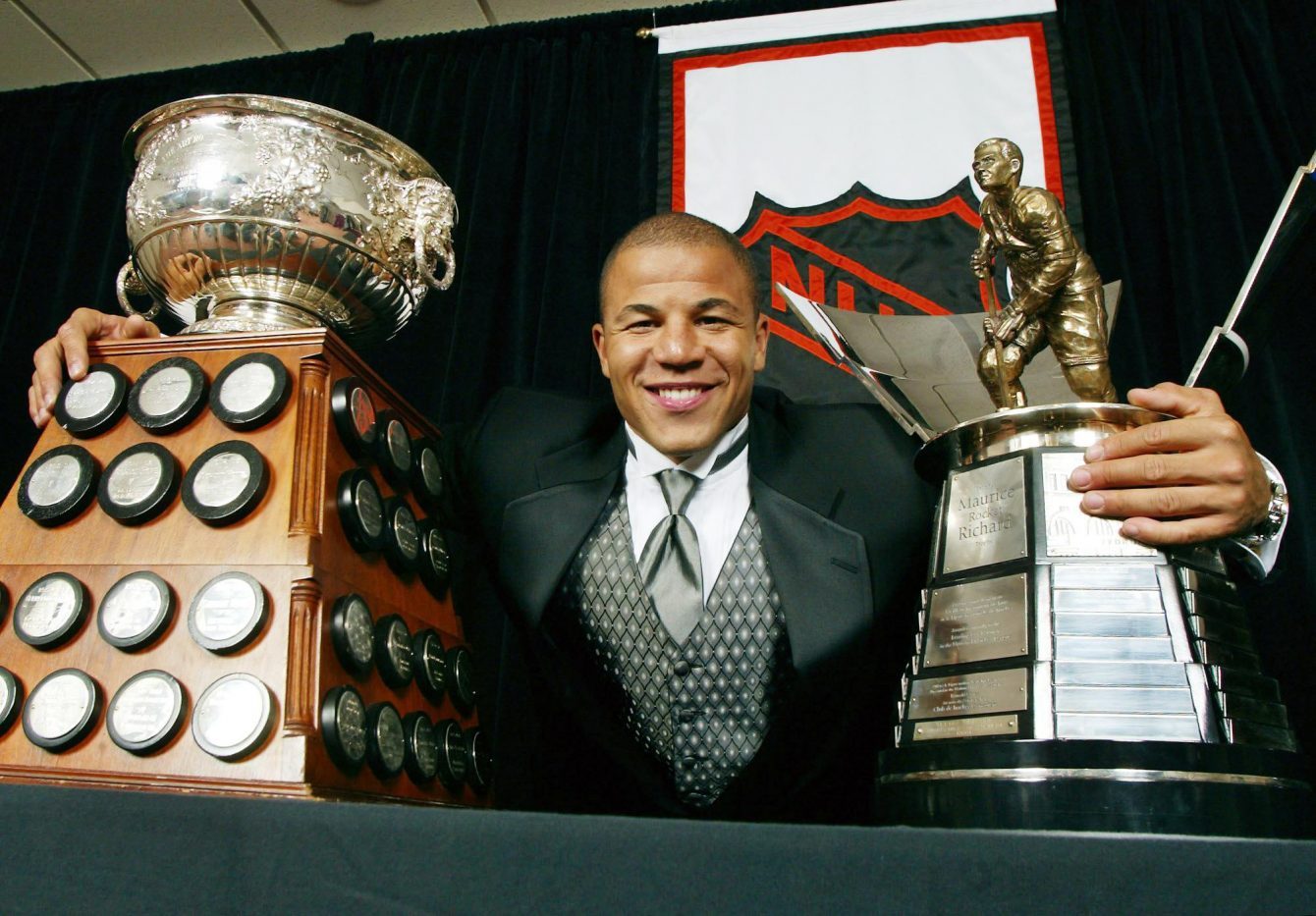
There were a couple of historic victories at Salt Lake City 2002. Just five days after American bobsledder Vonetta Flowers became the first Black athlete to win a Winter Olympic gold medal, hockey player Jarome Iginla became the first Black man to achieve that feat.
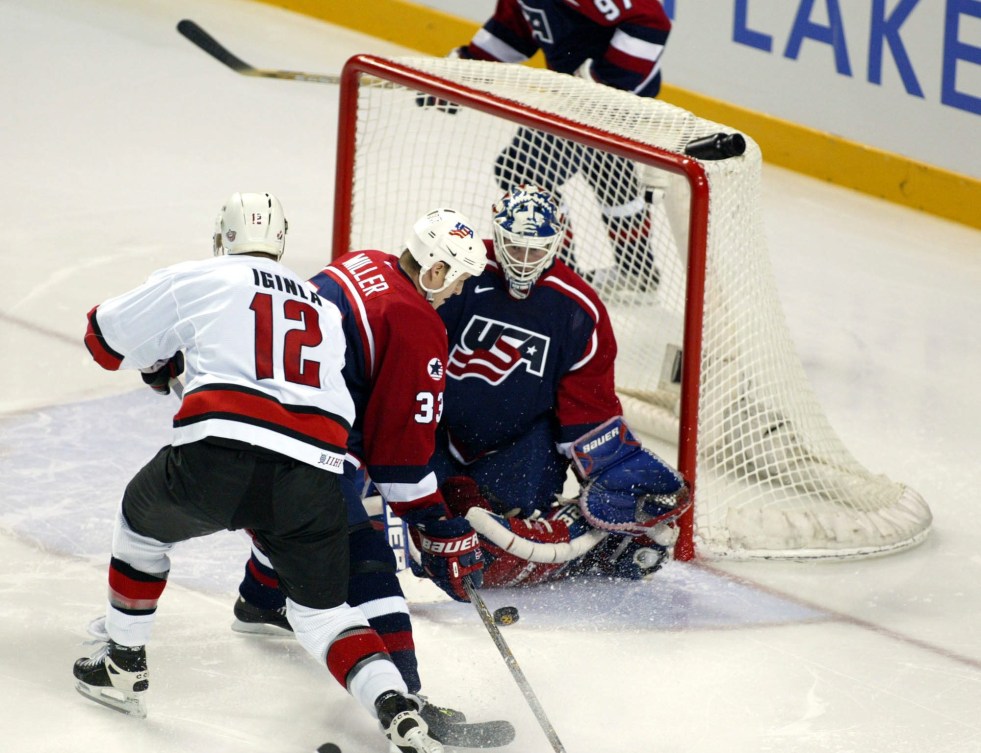
Iginla notched two goals in Team Canada’s 5-2 victory over Team USA that gave Canada its first Olympic gold medal in men’s hockey in 50 years. He would go on to compete at Turin 2006 and Vancouver 2010, becoming a three-time Olympian. He was a key contributor to Canada’s gold medal at the latter, earning the assist on Sidney Crosby’s “Golden Goal” in overtime against the United States in the final.
Phylicia George
After qualifying for back-to-back 100m hurdles finals at London 2012 and Rio 2016, Phylicia George slid in to the history books at PyeongChang 2018. Just a few months after she pushed a bobsled for the first time, George became the first Black woman from Canada to have competed at the summer and winter Olympic Games. But George did more than just compete in South Korea; she won a bronze medal with pilot Kaillie Humphries.
Damian Warner
At Tokyo 2020, Damian Warner did what no one had done before: break the 9000-point mark in the decathlon at the Olympic Games. Just the fourth man ever to surpass that mark, Warner led the decathlon from start to finish as he became the first Canadian to win Olympic gold in the two-day, 10-discipline event. It was to no one’s surprise that the man with the honourary title of World’s Greatest Athlete was selected to be Team Canada’s Closing Ceremony flag bearer.
Andre De Grasse
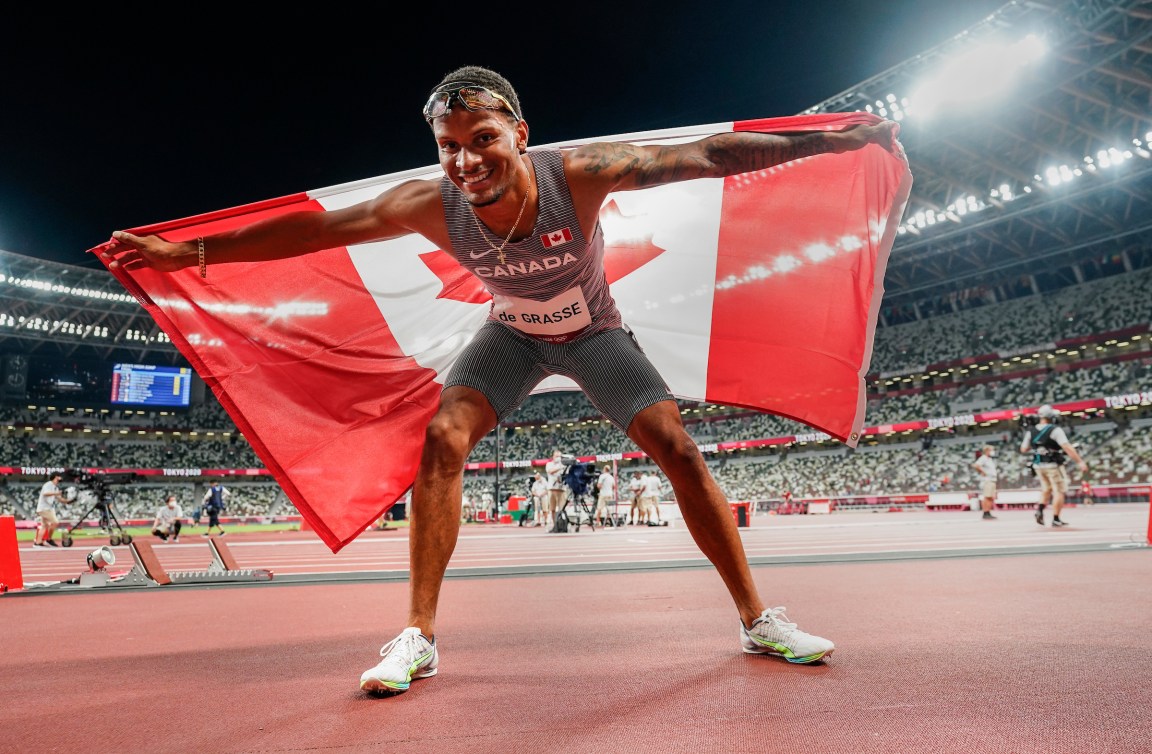
At Rio 2016, Andre De Grasse became the first Canadian athlete to win Olympic medals in all three sprint events, taking silver in the 200m and bronzes in the 100m and 4x100m relay. At Tokyo 2020, he hit the trifecta again. De Grasse upgraded himself to gold in the 200m, followed by a second straight bronze in the 100m. He then anchored the 4x100m relay to the silver medal.
At Paris 2024, De Grasse served as flag bearer for the Opening Ceremony, alongside weightlifter Maude Charron, leading Team Canada into the Games. He went on to secure his seventh Olympic medal, tying him with swimmer Penny Oleksiak as Canada’s all-time most decorated Olympian.
De Grasse crossed the finish line as the anchor of the men’s 4x100m relay team to win the gold medal for Team Canada. The team also included Aaron Brown, Jerome Blake and Brendon Rodney, as Brown and Rodney also won their third straight Olympic medal in the event. The Canadians ran a time of 37.50, just 0.02 seconds shy of the national record that the same quartet ran to become world champions in 2022.
Joshua Liendo
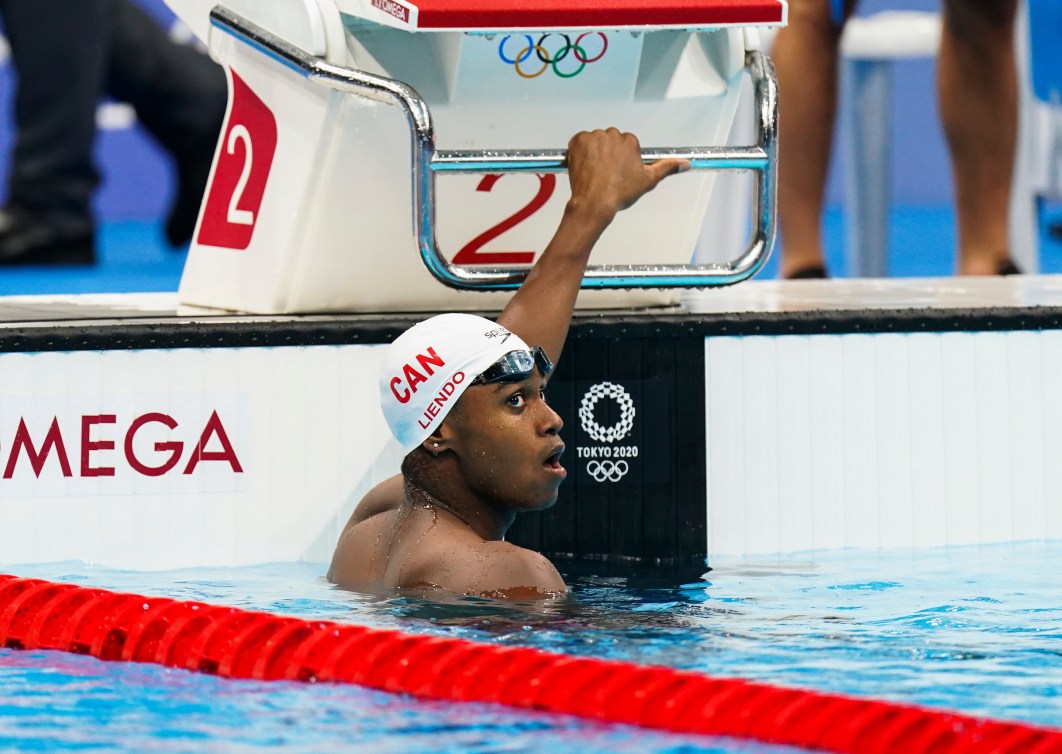
Black swimmers at the Olympic level are still a rarity. But Joshua Liendo is hopeful that the visibility of his accomplishments will help his sport become more diverse.
Liendo made his Olympic debut at Tokyo 2020 where he was part of a fourth-place finish in the men’s 4x100m freestyle relay. He went on to become the first Black Canadian swimmer to win a gold medal and an individual medal at a major international meet. At the short course (25m) FINA World Championships in December 2021, he won gold in the mixed 4x50m freestyle relay to go with bronzes in the 50m and 100m freestyle events.
Liendo made more breakthroughs in 2022 when he won three medals at the long course World Aquatics Championships, highlighted by his bronzes in the 100m freestyle and 100m butterfly. It had been 49 years since a Canadian had been on the world podium in the latter. He followed up with silver in the 100m butterfly at the 2023 World Aquatics Championships.
At Paris 2024, Liendo captured his first Olympic medal, winning silver in the men’s 100m butterfly. This accomplishment marked Liendo in the history books as the first Black Canadian swimmer to win an Olympic medal. He shared the podium with teammate Ilya Kharun, who won bronze, as they earned Canada’s first double podium at the Olympic Summer Games since 1976.
Liendo’s medal came after a tantalizingly close finish in the 50m freestyle, where he missed the podium by 0.02 seconds.
Sarah Nurse
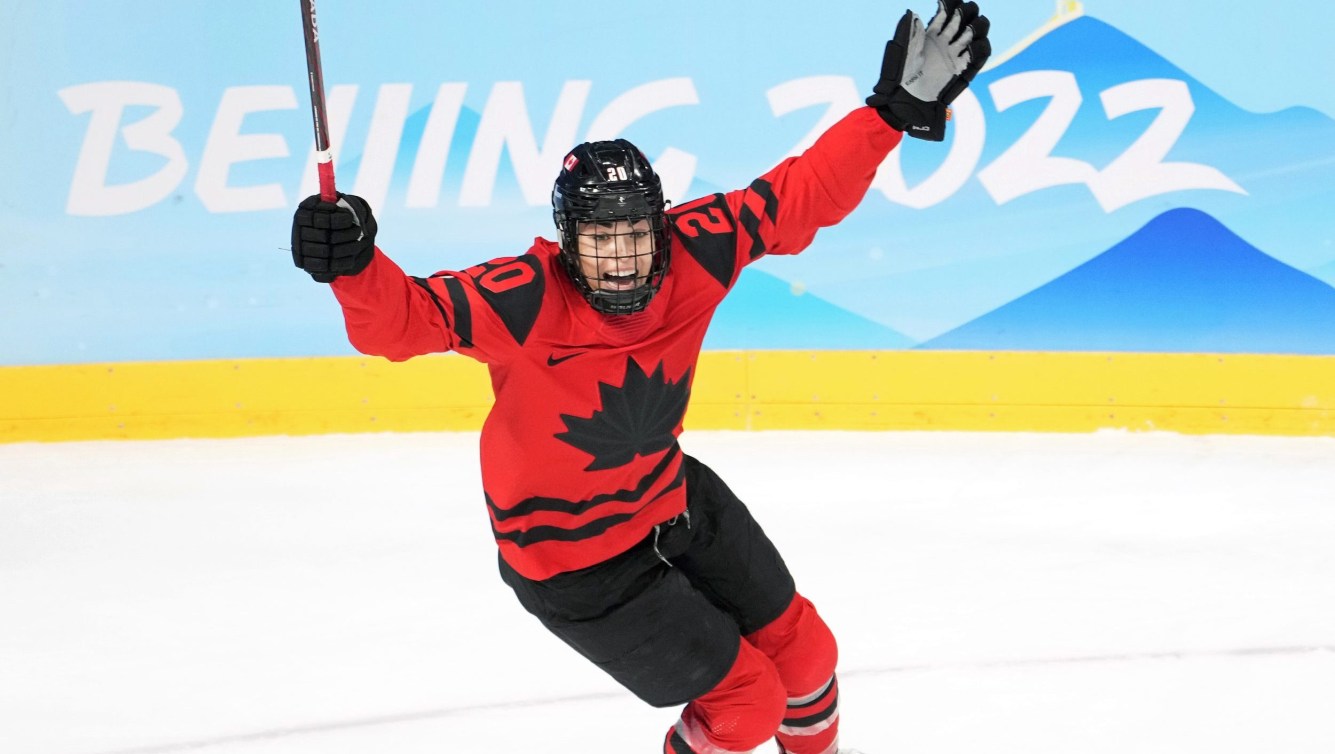
In her second Olympic appearance at Beijing 2022, Sarah Nurse was instrumental in Canada’s gold medal victory in women’s hockey. She broke the points record for a single Olympic tournament, recording five goals and 13 assists. Her 18 points surpassed the previous record held by the legendary Hayley Wickenheiser since 2006. In the gold medal game against the United States, Nurse scored the opening goal and assisted on the eventual game winner.

Nurse is believed to be the first Black woman to play hockey for Canada at the Olympic Winter Games. She did that in her debut at PyeongChang 2018. Four years later, she became the first Black woman to win Olympic gold in hockey. Her status in the sport was recognized later in 2022 when she was revealed as the first woman to appear on the cover of EA Sports NHL video game franchise.
Cynthia Appiah and Dawn Richardson Wilson
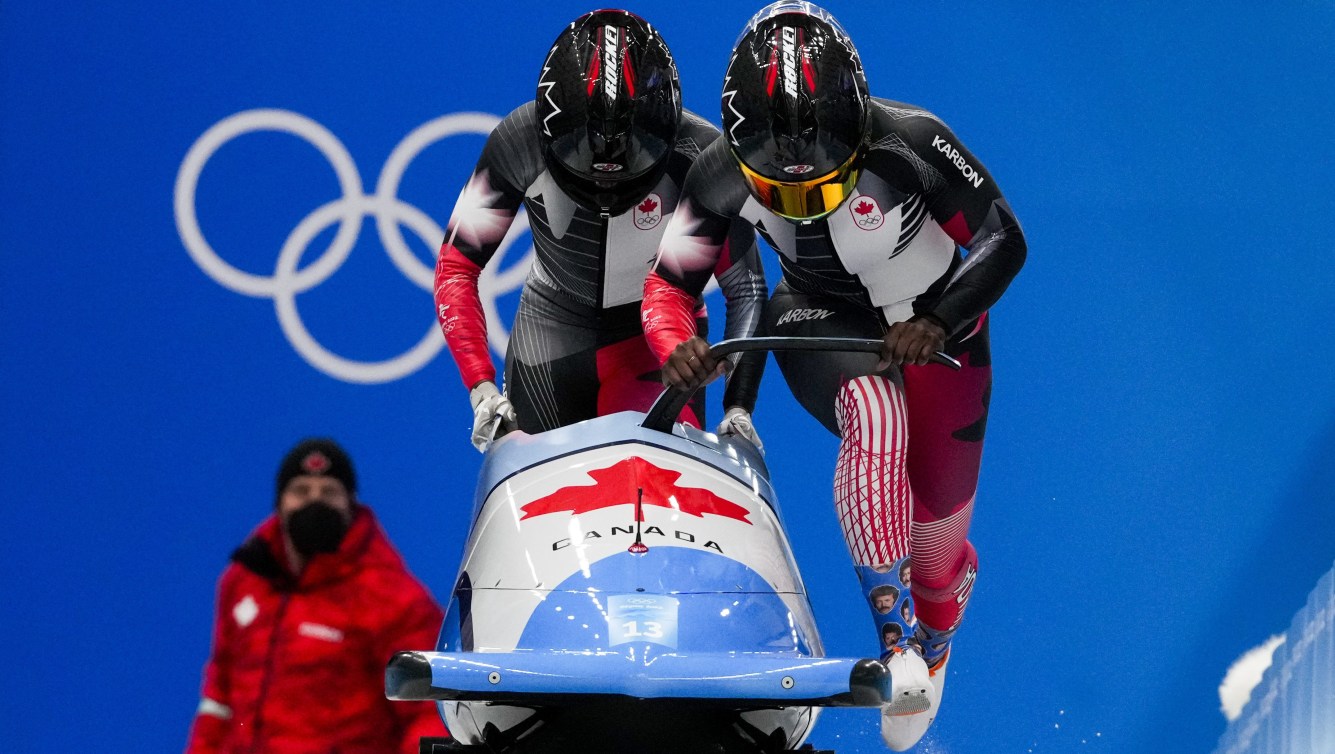
After having her Olympic dreams dashed while she was a brakewoman, Cynthia Appiah persevered to become Canada’s first Black female bobsleigh pilot. When she finally did make her official Olympic debut at Beijing 2022, she did so with another athlete who shared her Ghanaian heritage in the back seat of her two-woman sled: Dawn Richardson Wilson. That made them the first Black bobsleigh crew in Canadian Olympic history. Appiah had long been inspired by Shelley-Ann Brown, who won Olympic silver as a brakewoman for Canada at Vancouver 2010.
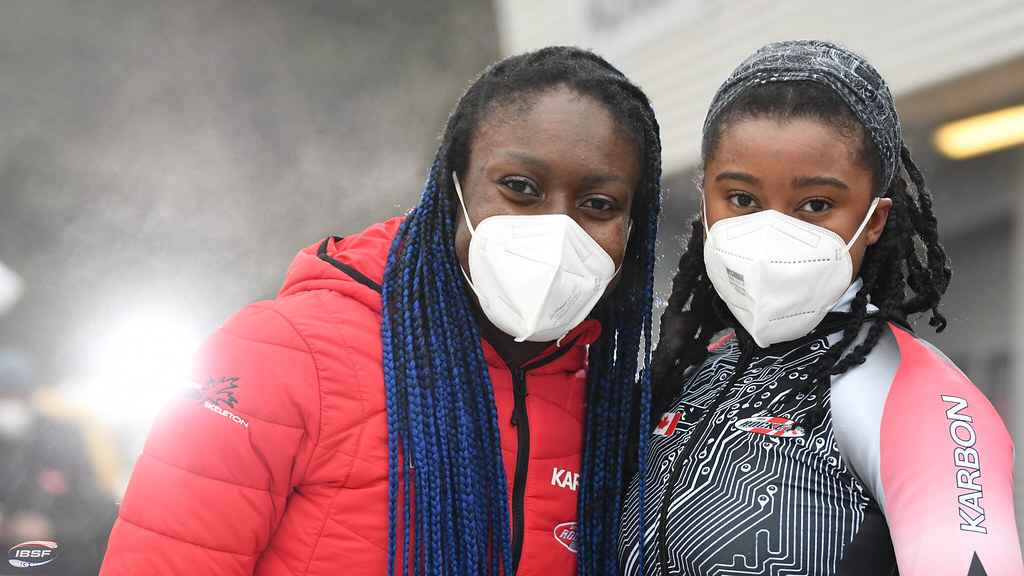
Camryn Rogers
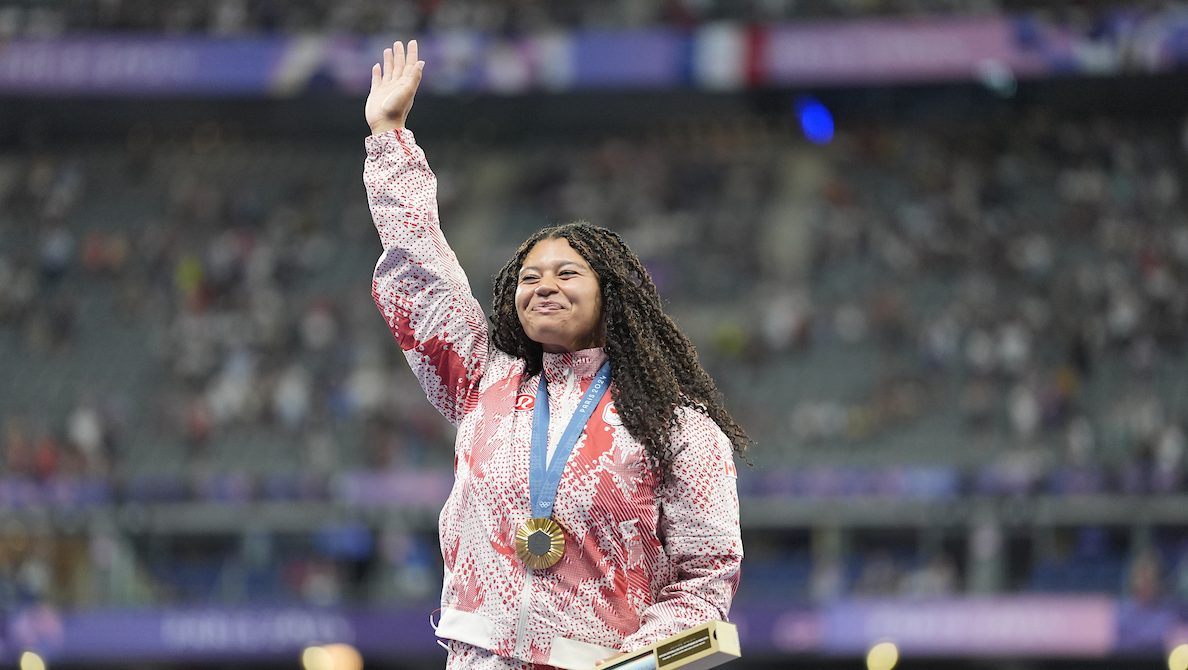
At Paris 2024, Camryn Rogers became Canada’s first ever Olympic medallist in women’s hammer throw, winning the gold medal with a best throw of 76.97m. Her success marked Canada’s first Olympic gold medal in any women’s athletics event in 96 years.
In her Olympic debut at Tokyo 2020, Rogers was the first Canadian woman to ever advance to an Olympic hammer throw final and went on to finish fifth overall with a best effort of 74.35m. She was the youngest competitor in that final by almost two years.
In 2023, Rogers became Canada’s first ever world champion in women’s hammer throw, which followed the silver medal she won at the 2022 World Athletics Championships. In her debut at the global meet, Rogers became the first Canadian woman to ever win a world championship medal in a field event.
Charity Williams
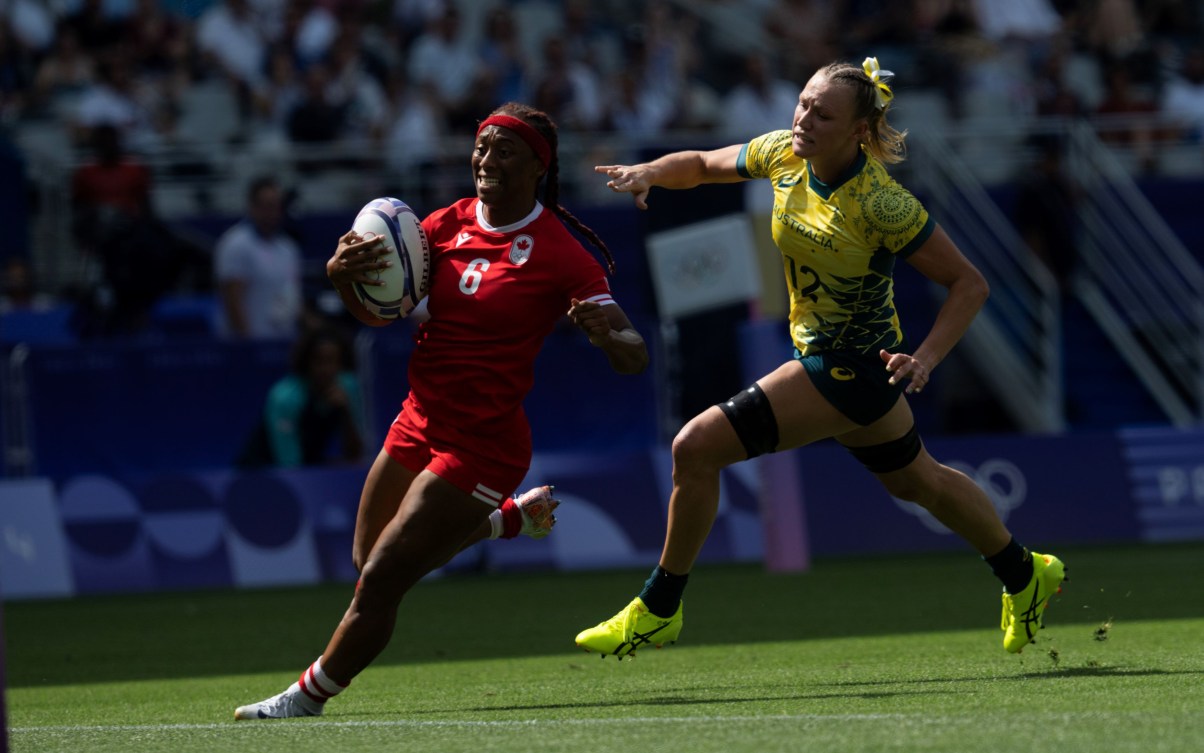
Three-time Olympian Charity Williams is the only Canadian to win two Olympic medals in rugby.
Williams was part of the Canadian team that won bronze in the inaugural women’s Olympic rugby sevens tournament at Rio 2016. She played on Team Canada at Tokyo 2020, where the Canadians finished ninth. At Paris 2024, Team Canada returned to the podium, winning silver.
Williams was the only member of the Canadian women’s rugby team at Paris 2024 to have two previous Olympic experiences under her belt, cementing her status as a veteran leader on the squad. Williams was Canada’s top scorer in Paris with five tries, often celebrating with a somersault.
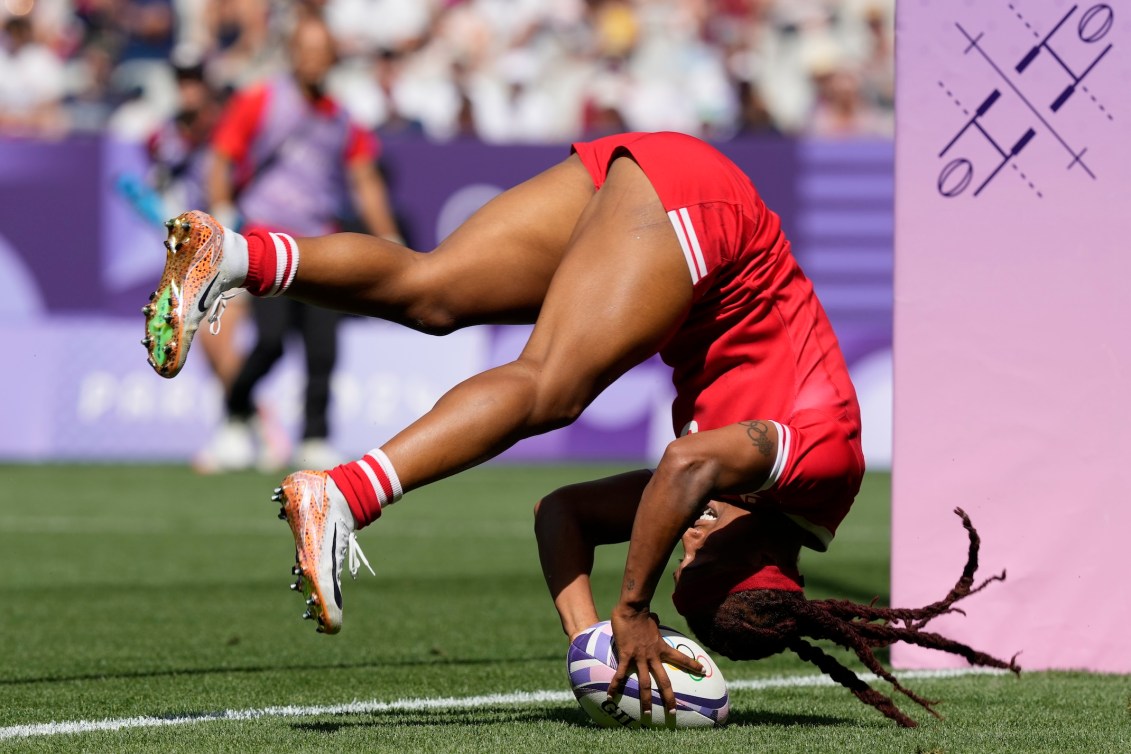
Félix Auger-Aliassime
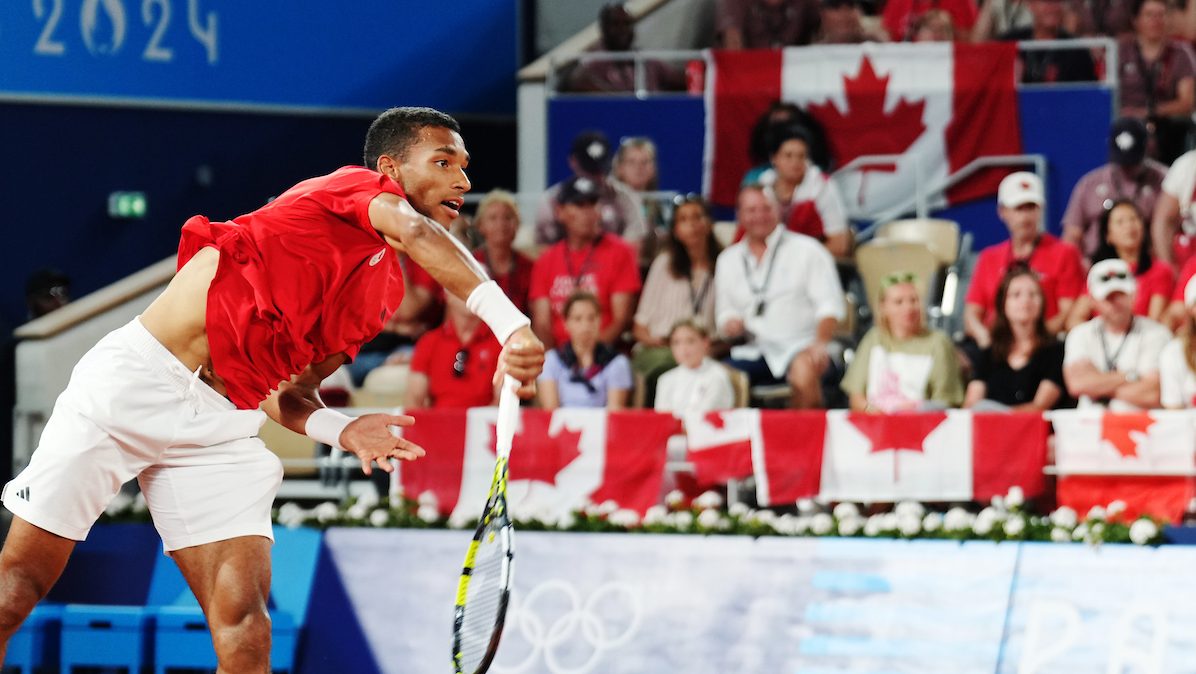
Félix Auger-Aliassime carried a heavy competition load at the Paris 2024 Olympic Games, competing in the men’s singles, men’s doubles, and mixed doubles tournaments.
He found the podium in the mixed doubles tournament, winning bronze alongside teammate Gaby Dabrowski for Canada’s second ever Olympic medal in tennis, but the first in 24 years. The next day, Auger-Aliassime finished just off the podium in the men’s singles, but his fourth place finish is Canada’s best ever Olympic result in either tennis singles event.
Auger-Aliassime has been a key player for Team Canada beyond the Olympic Games, leading Canada to its historic Davis Cup victory in 2022.
Brandie Wilkerson
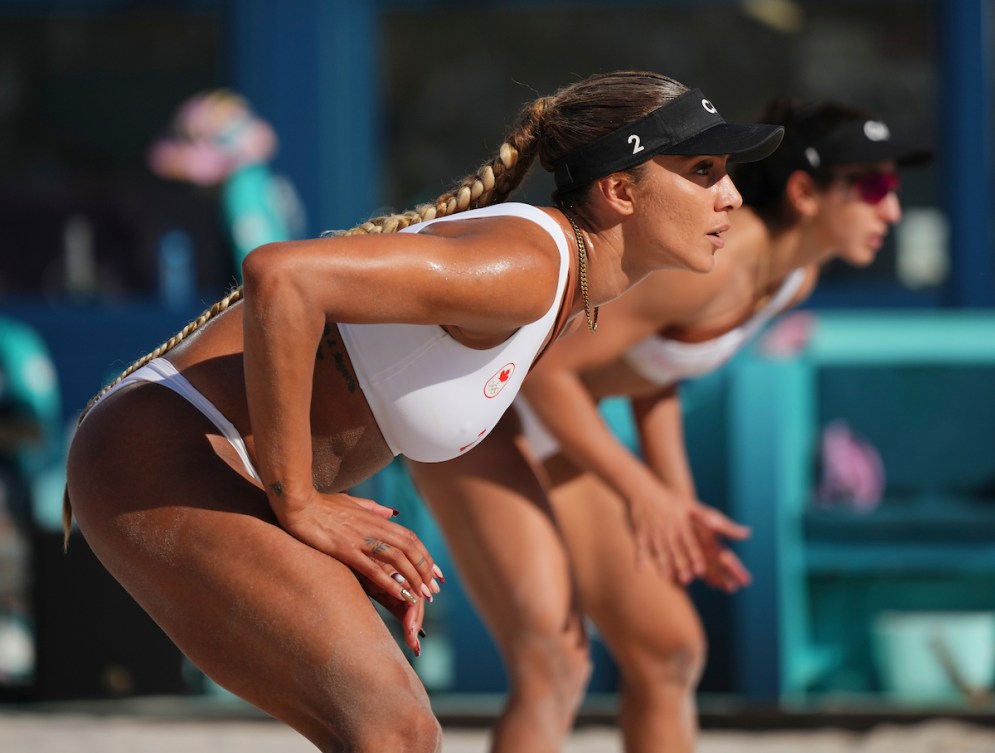
At Paris 2024, Brandie Wilkerson and teammate Melissa Humana-Paredes delivered a historic moment for Team Canada, winning the country’s first-ever Olympic medal in women’s beach volleyball.
The duo only started working together in 2022, though their history as university teammates set them up for success. The pair won silver at the Santiago 2023 Pan Am Games.
Wilkerson is an advocate for greater representation in her sport, co-founding Project Worthy, a scholarship program aimed at increasing BIPOC participation in volleyball.

